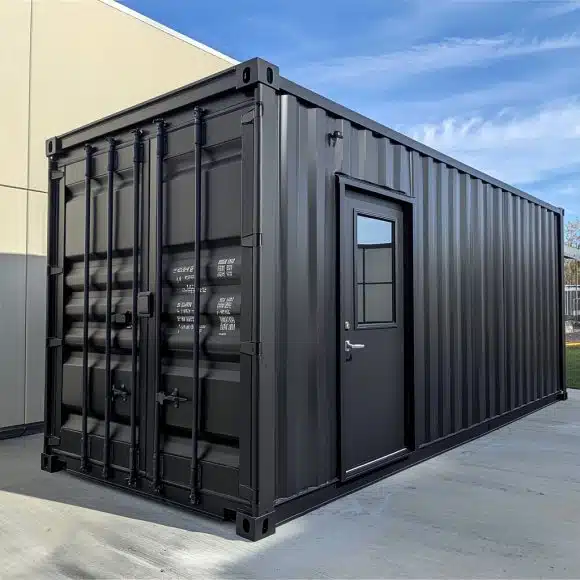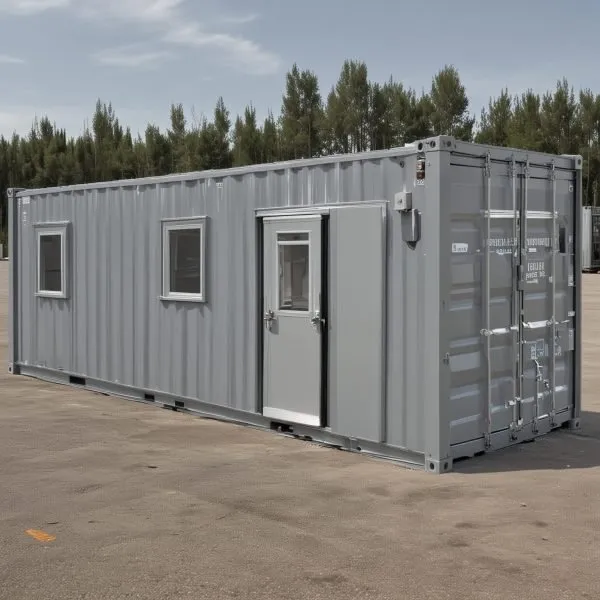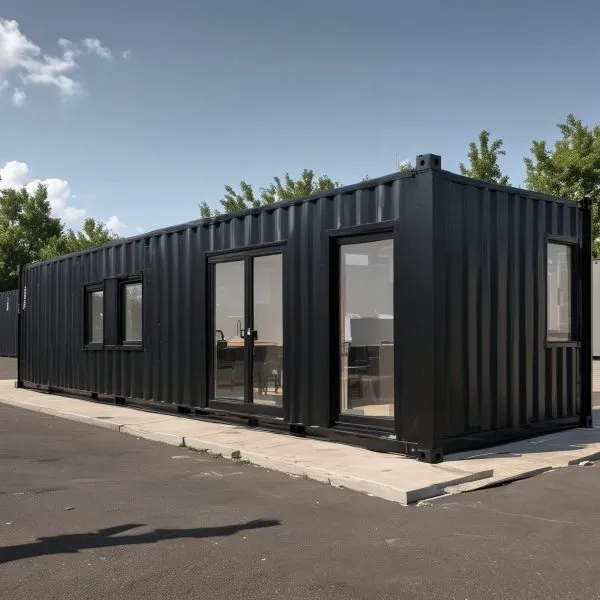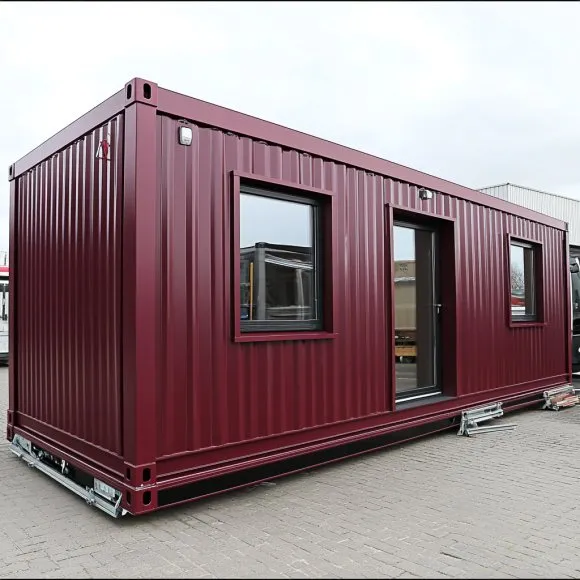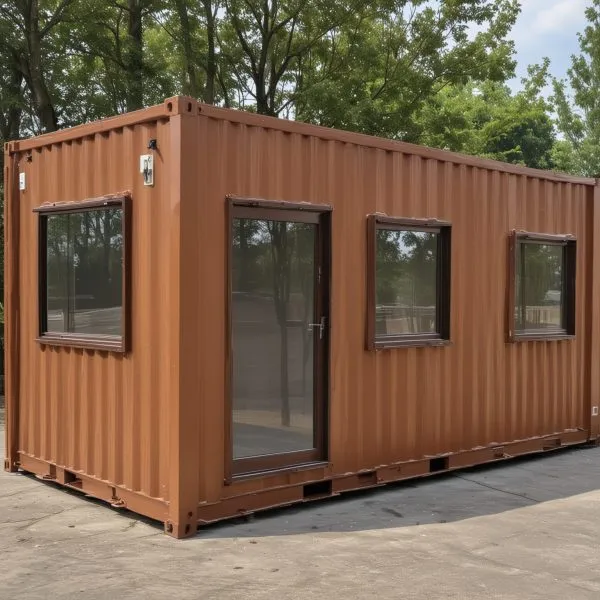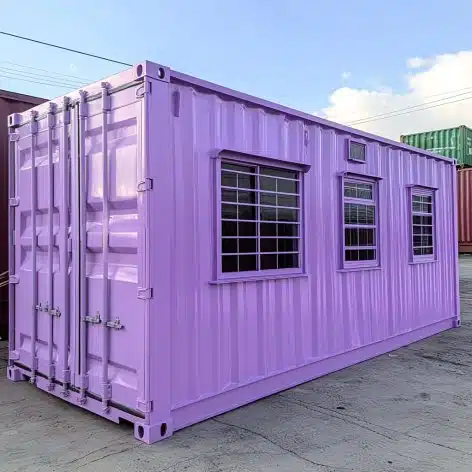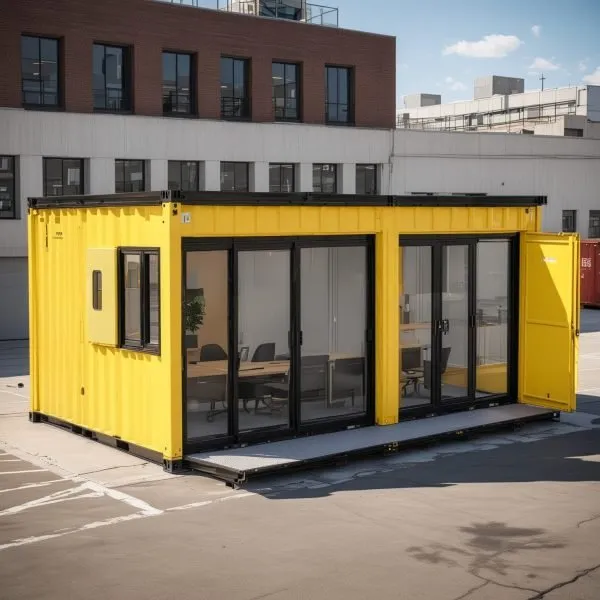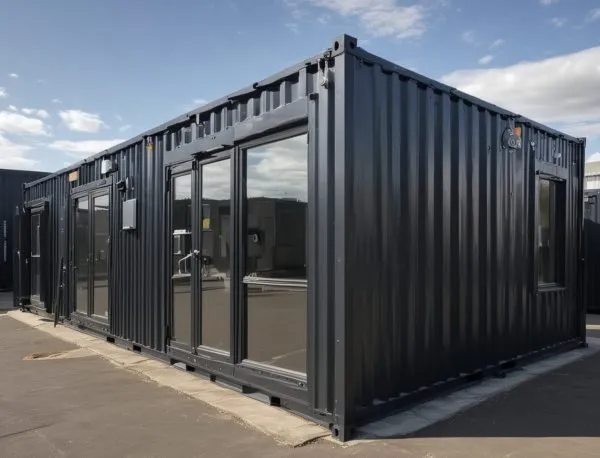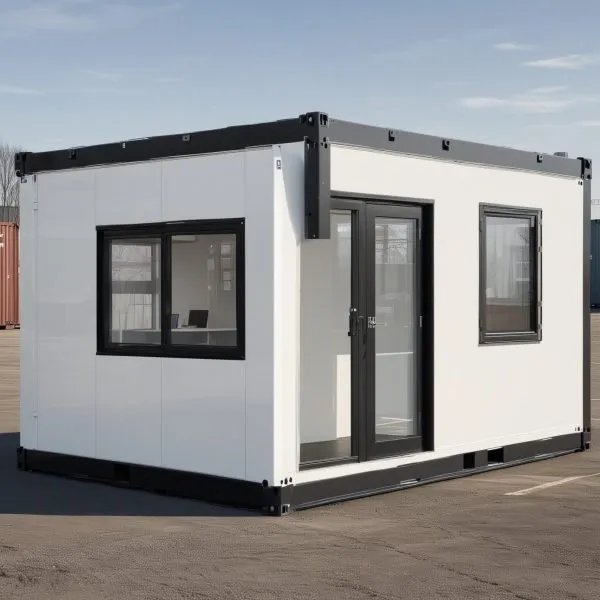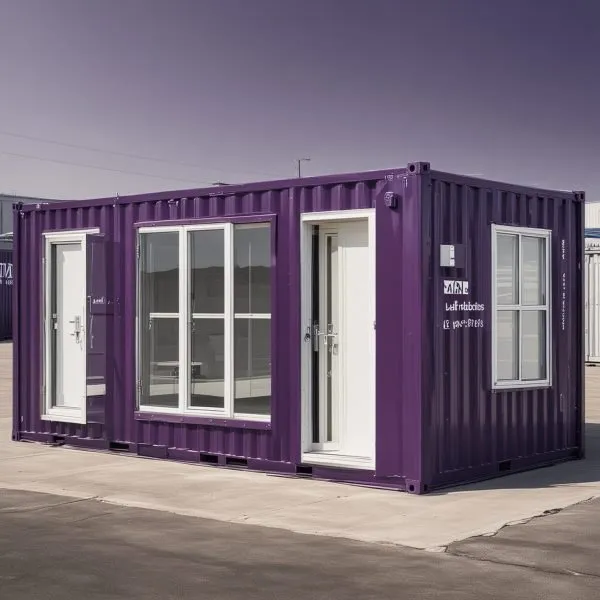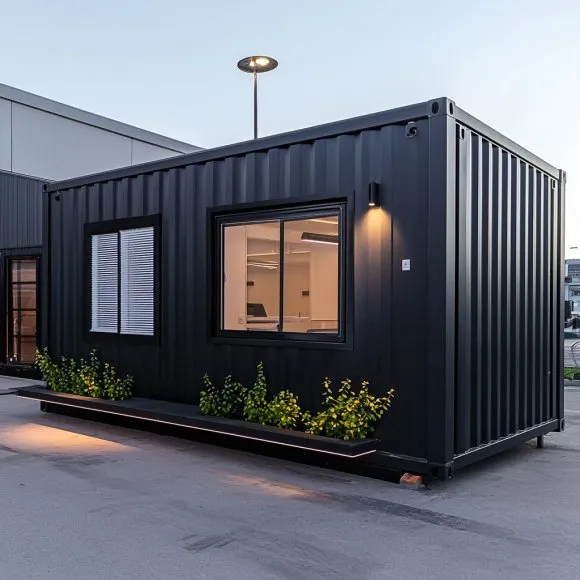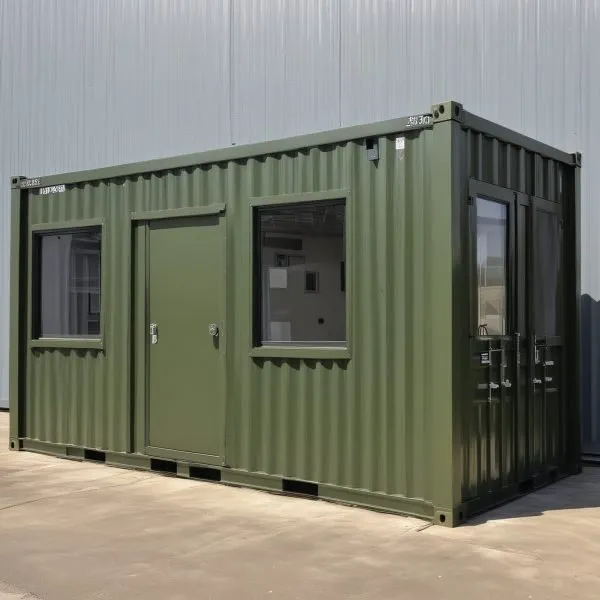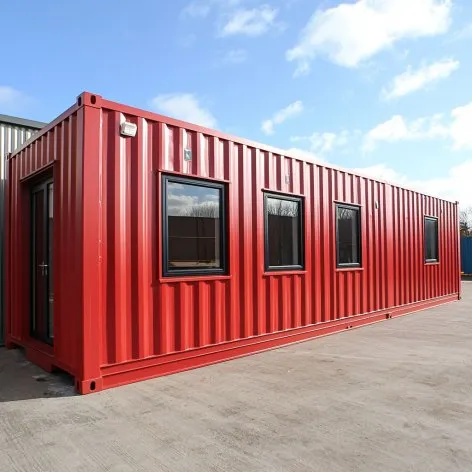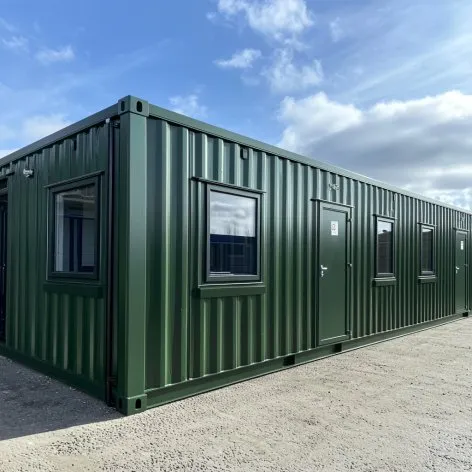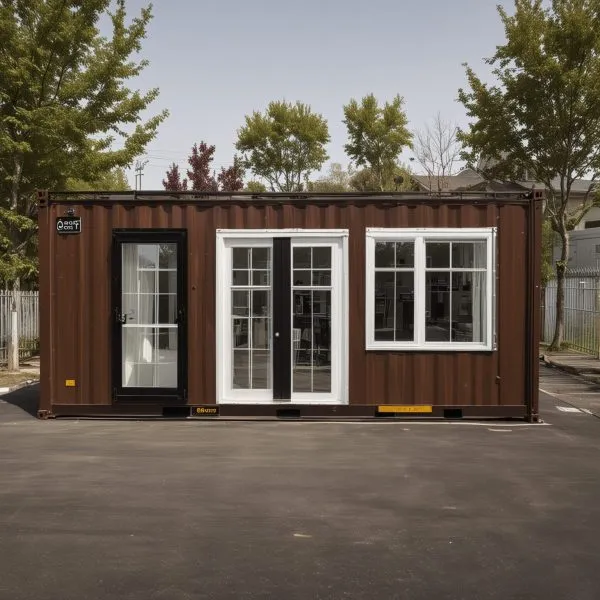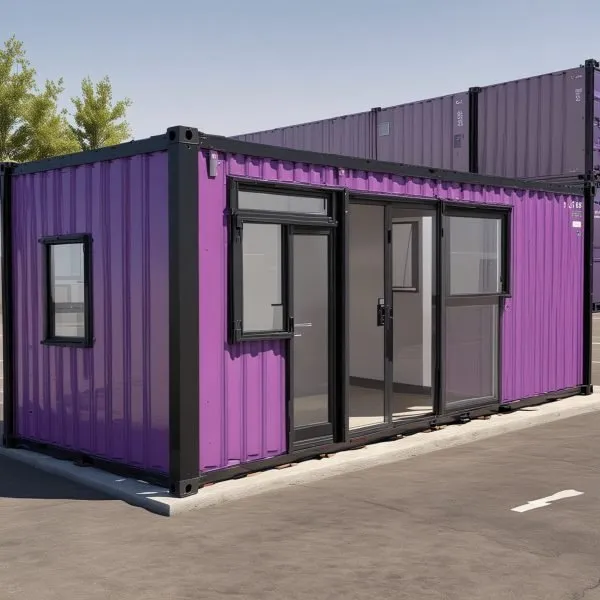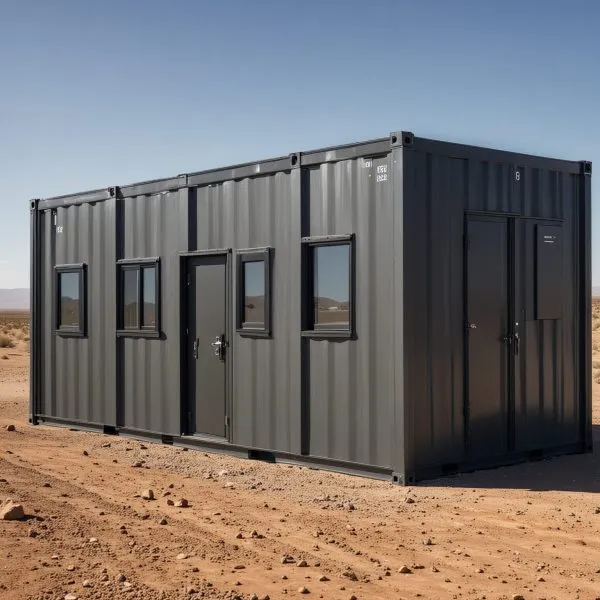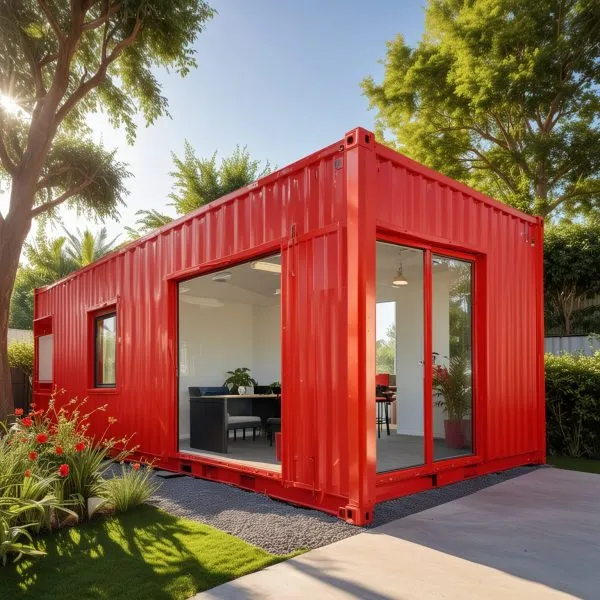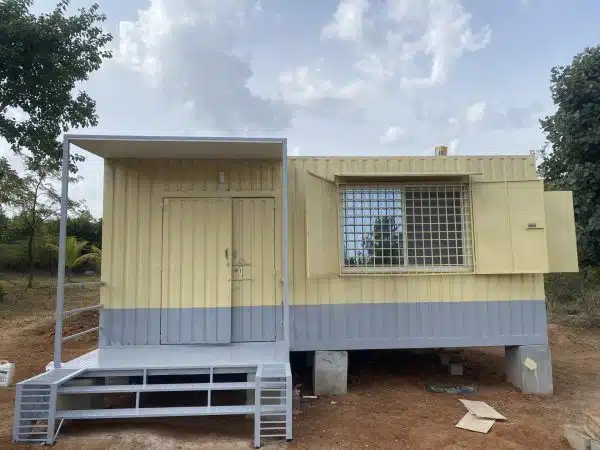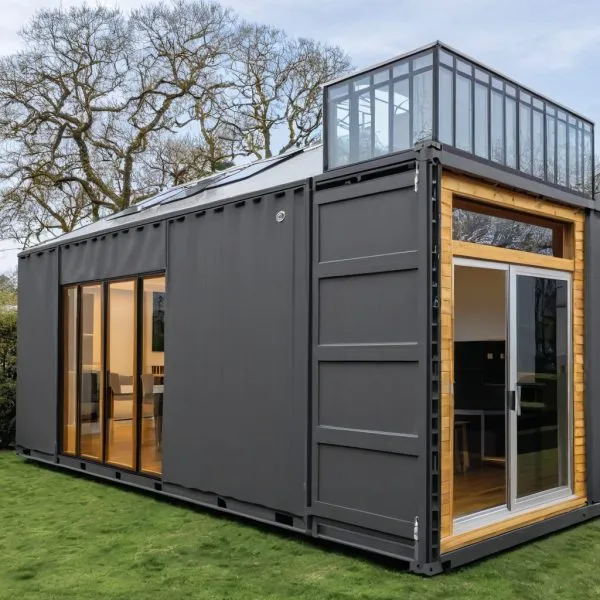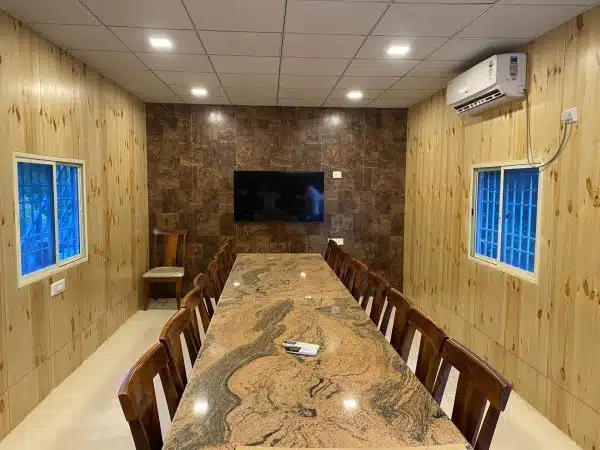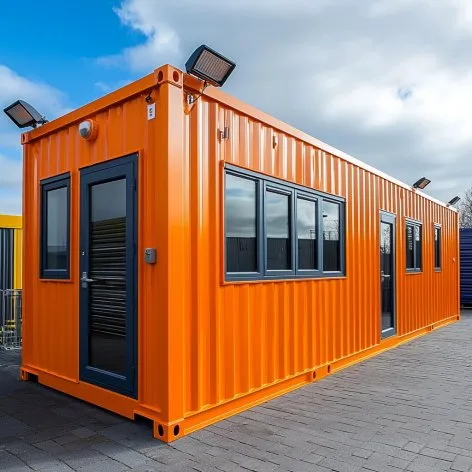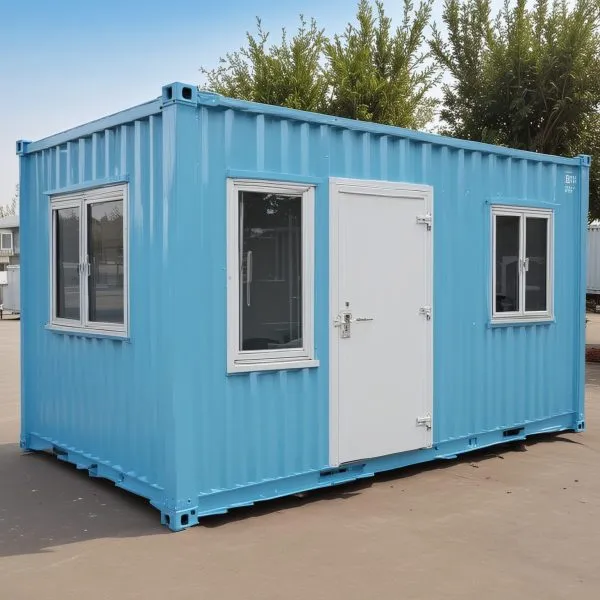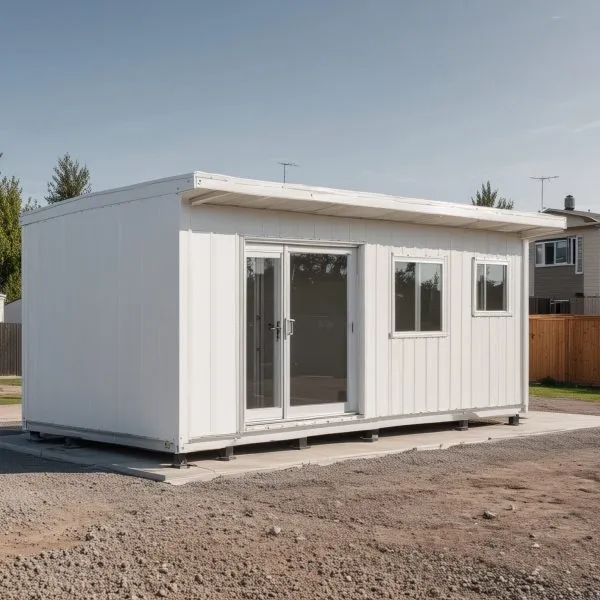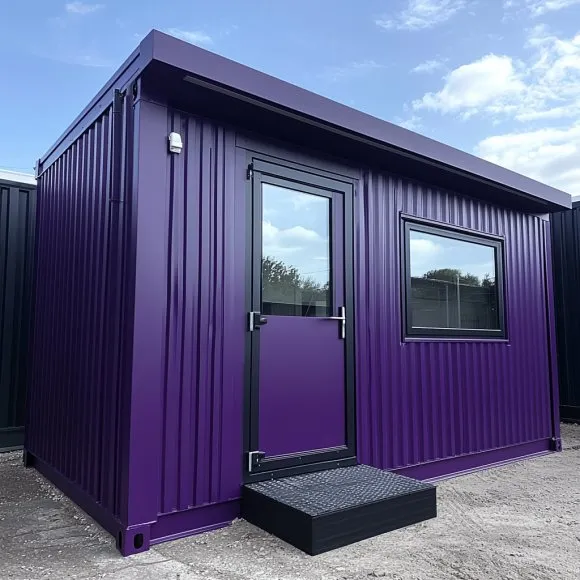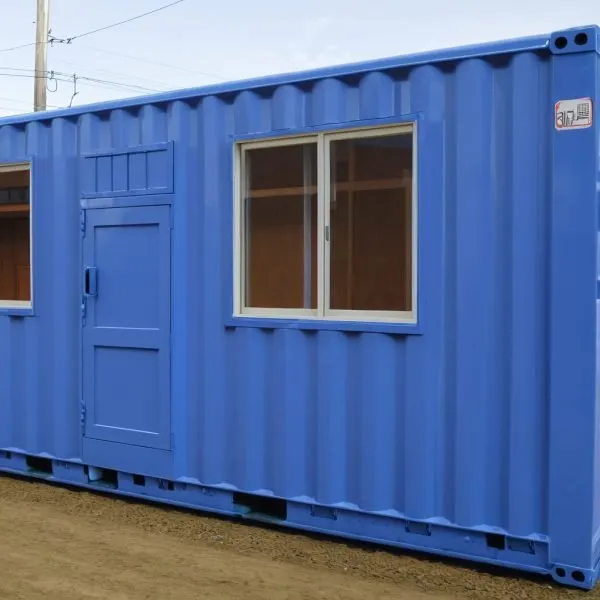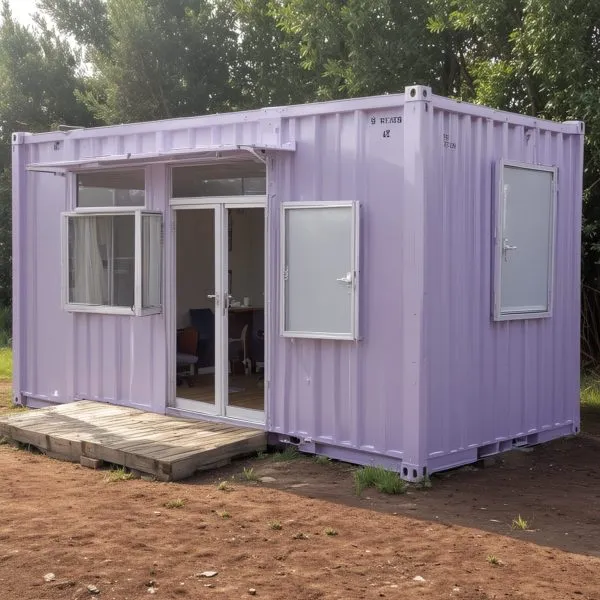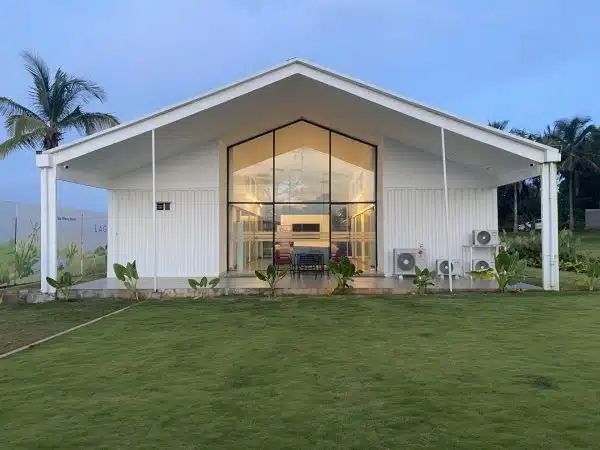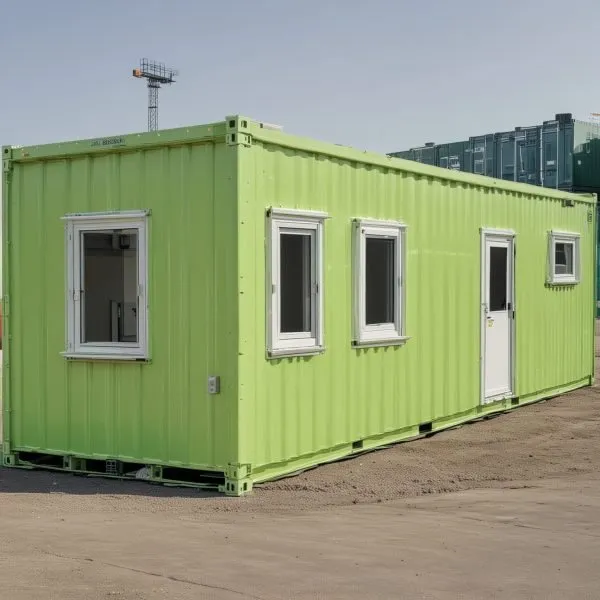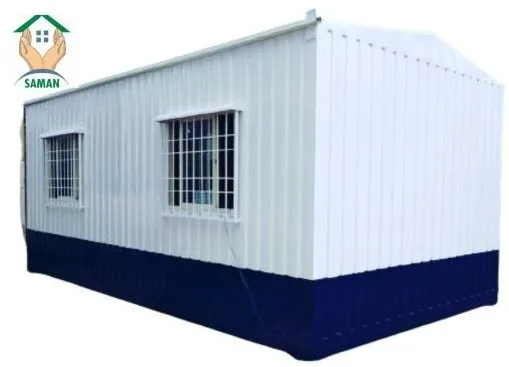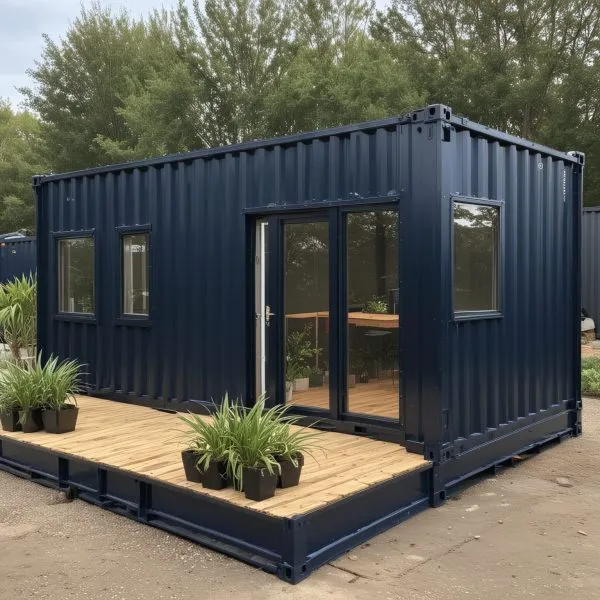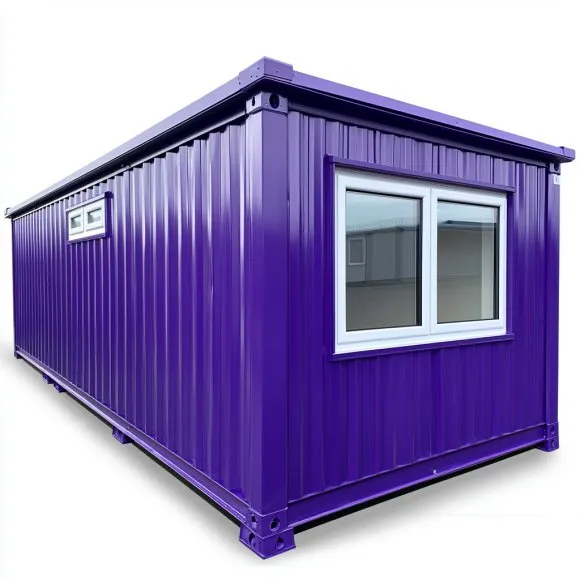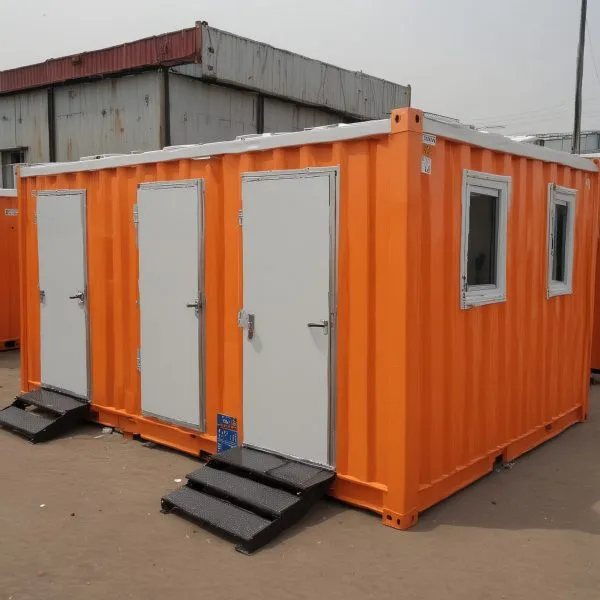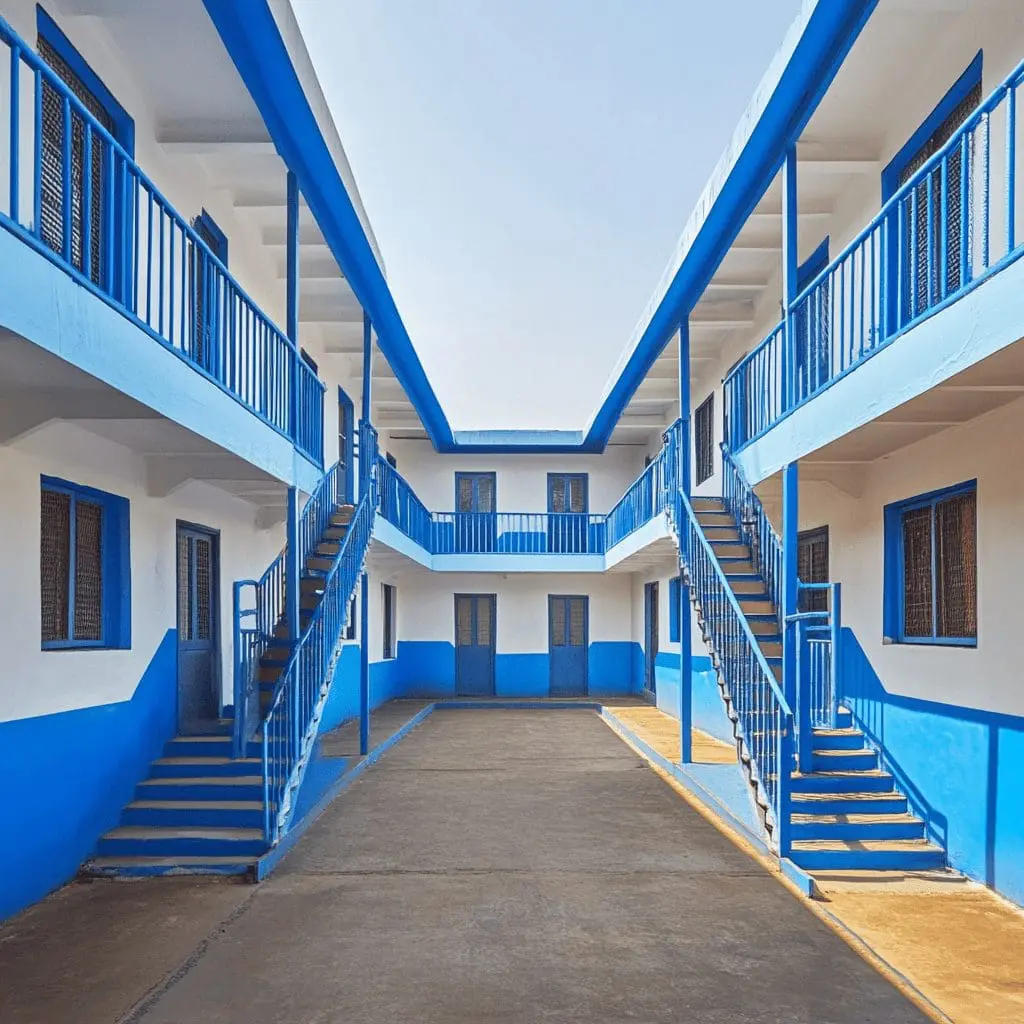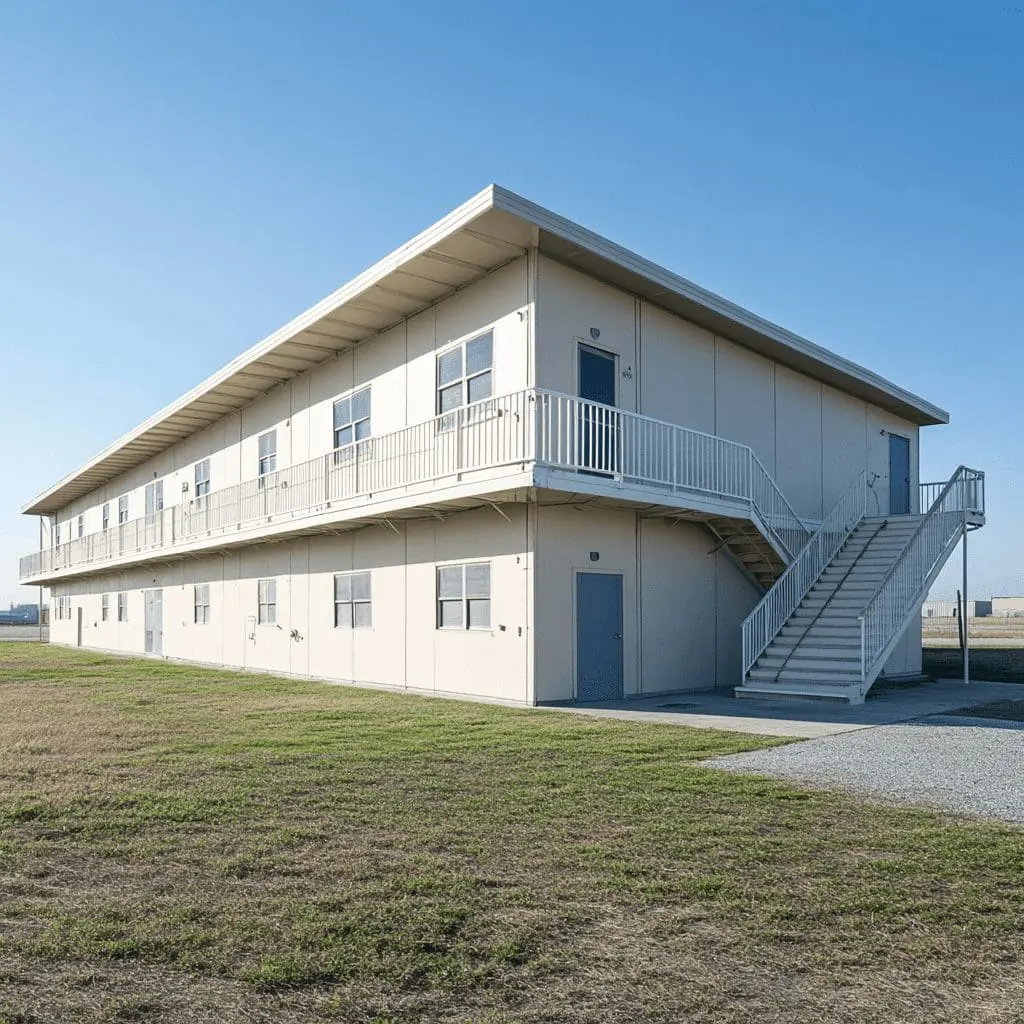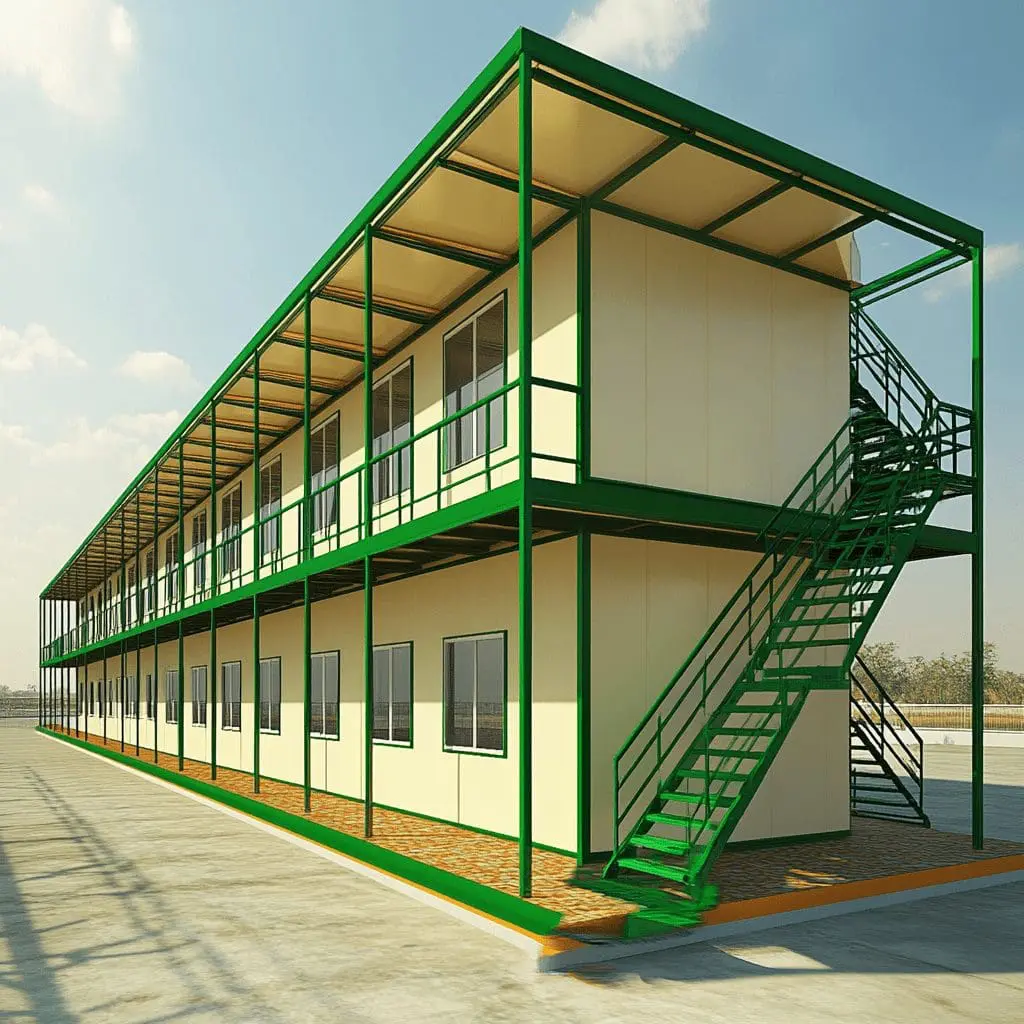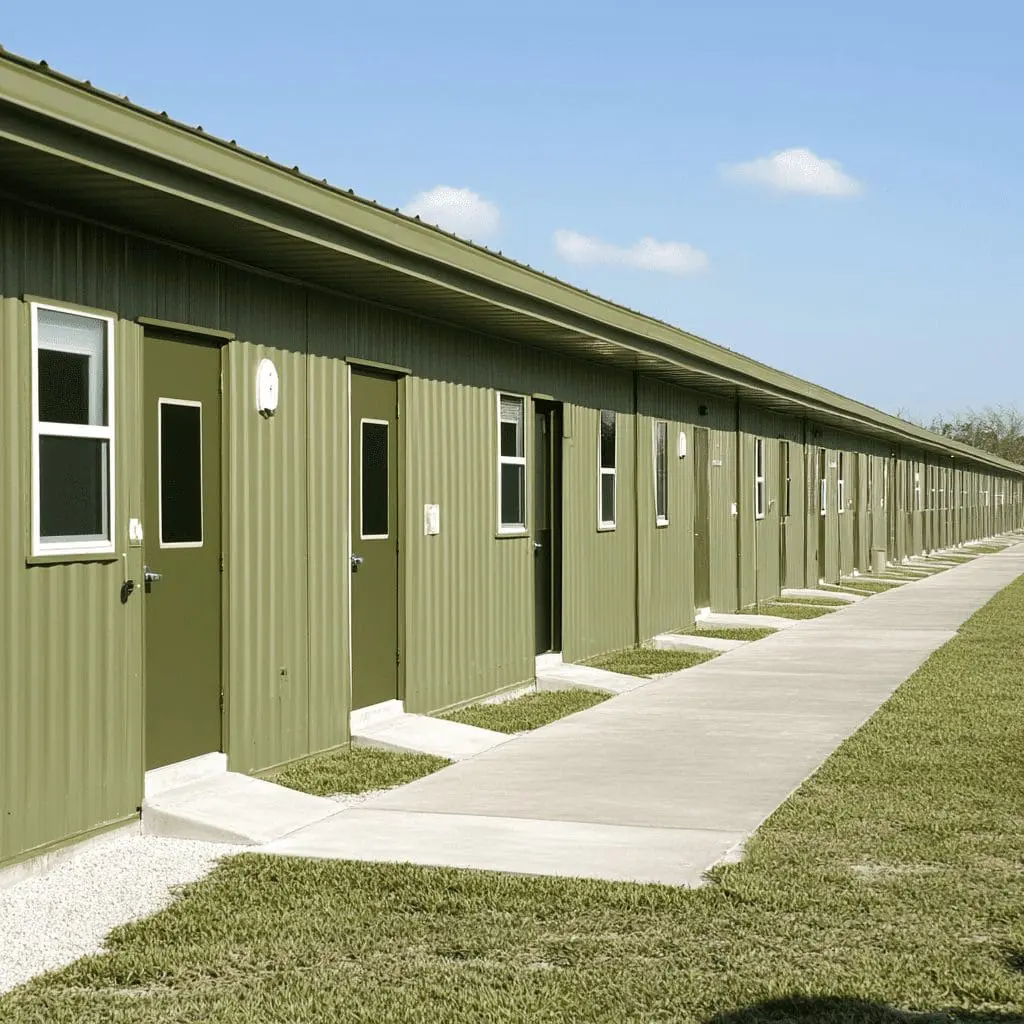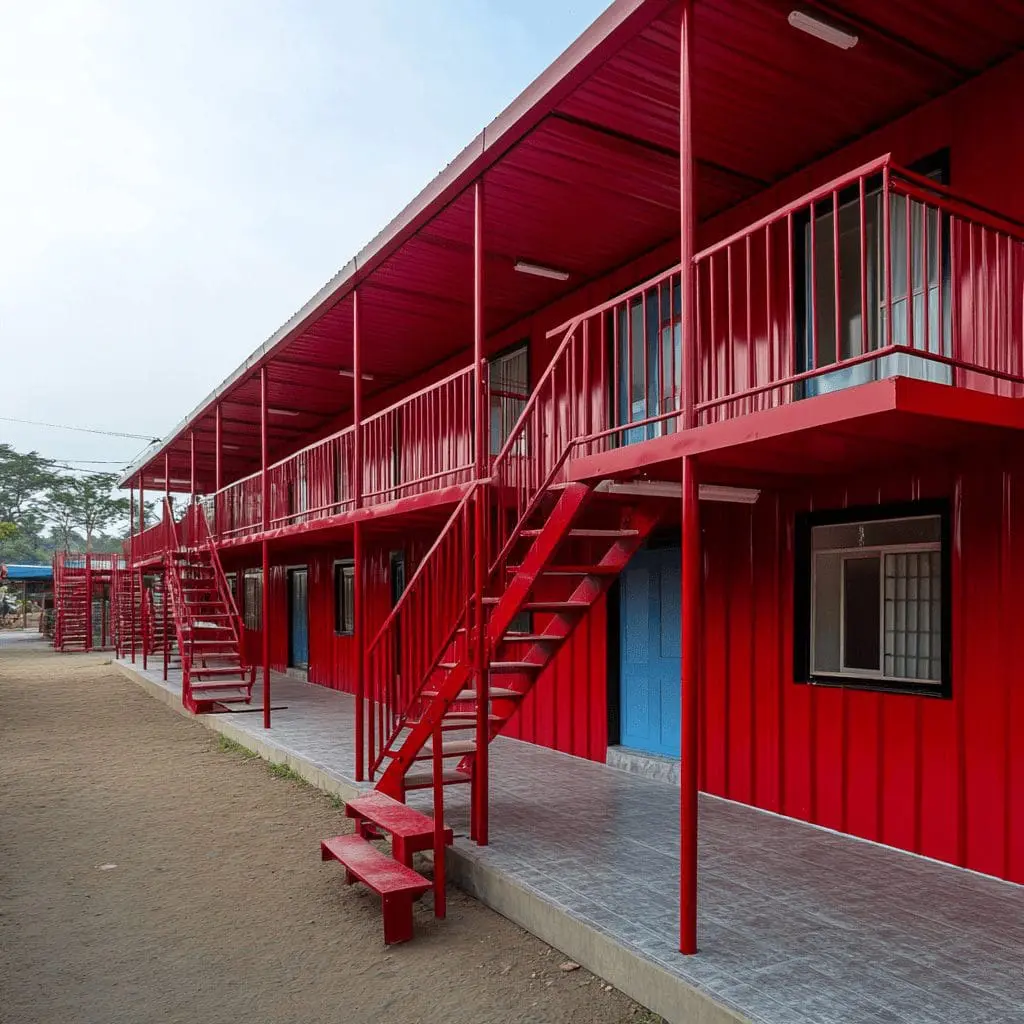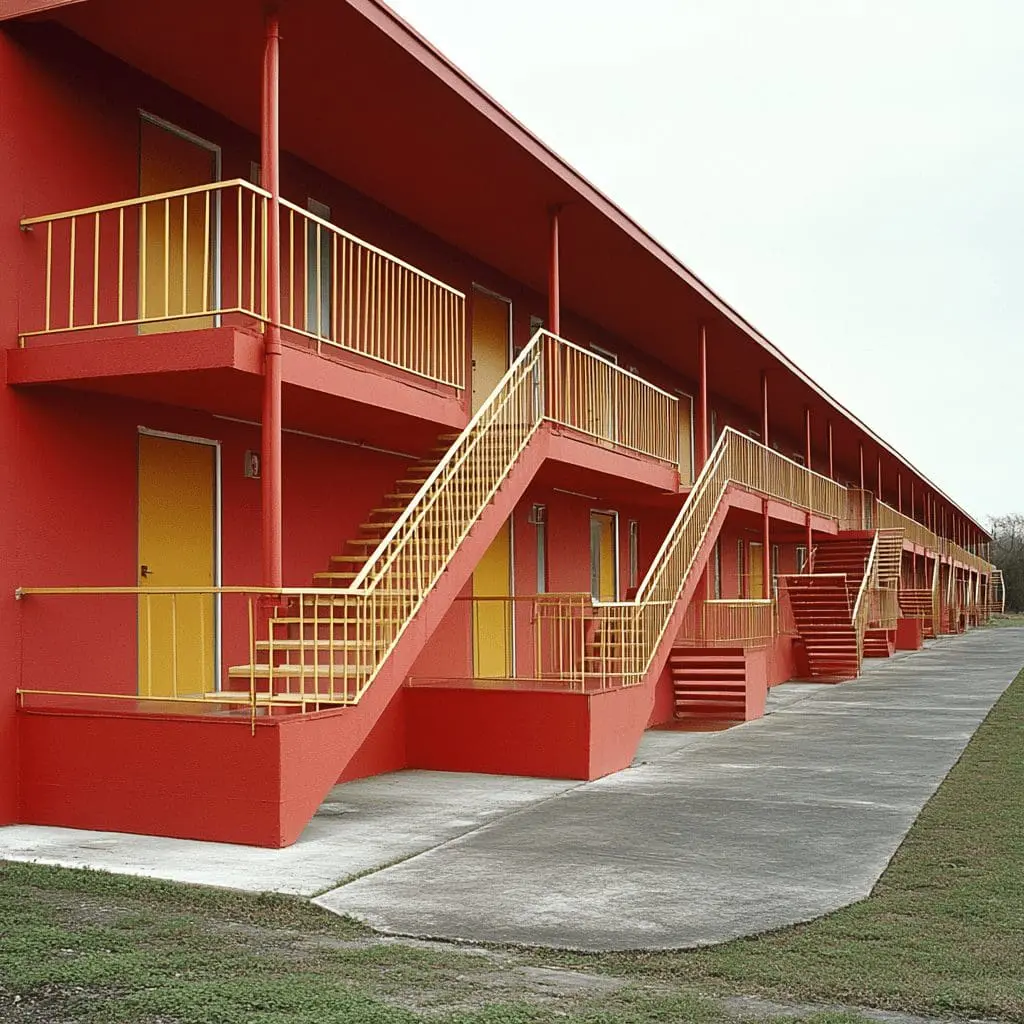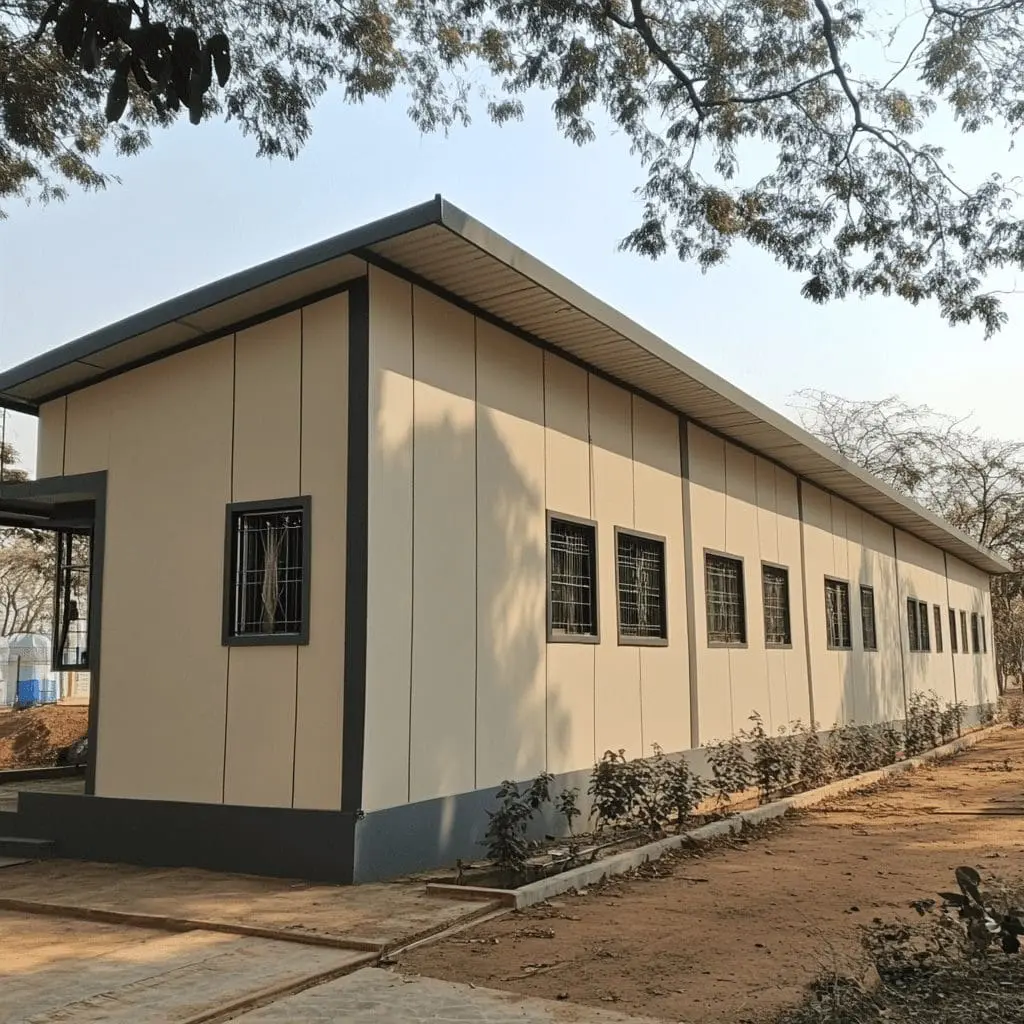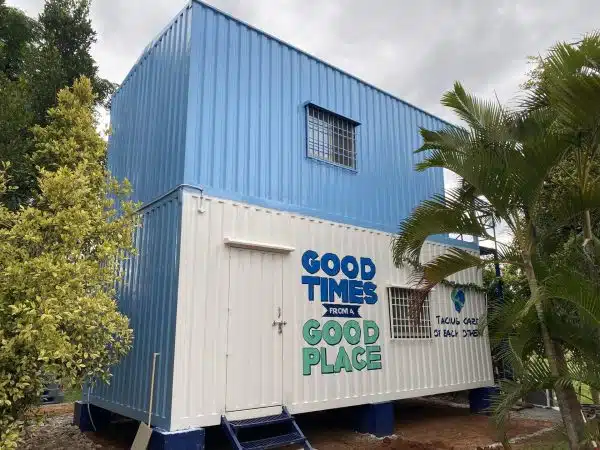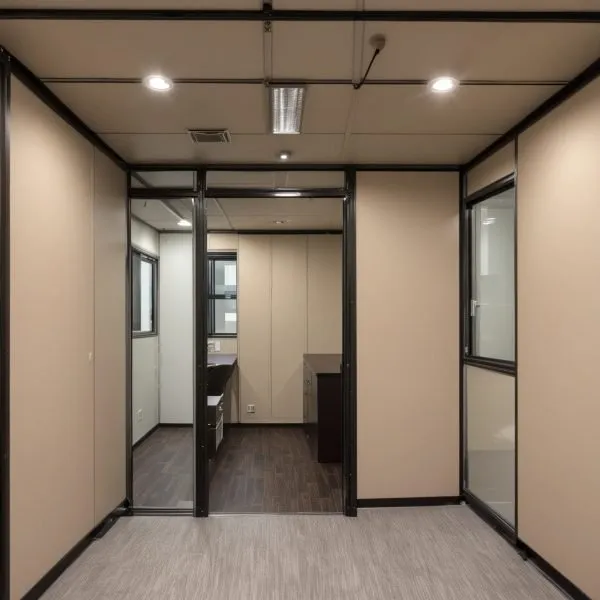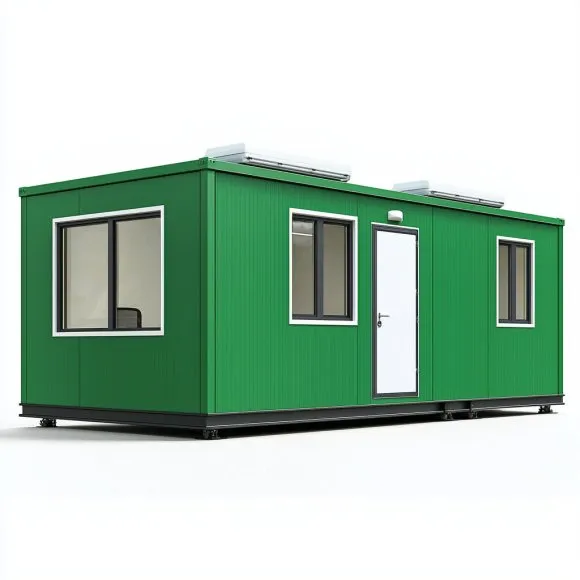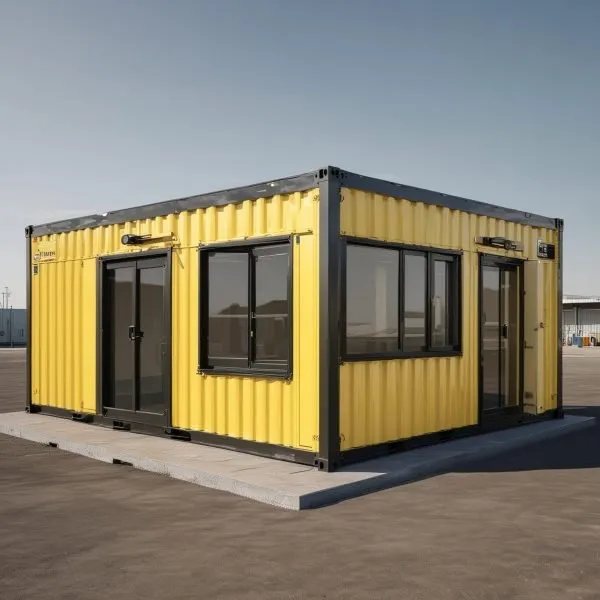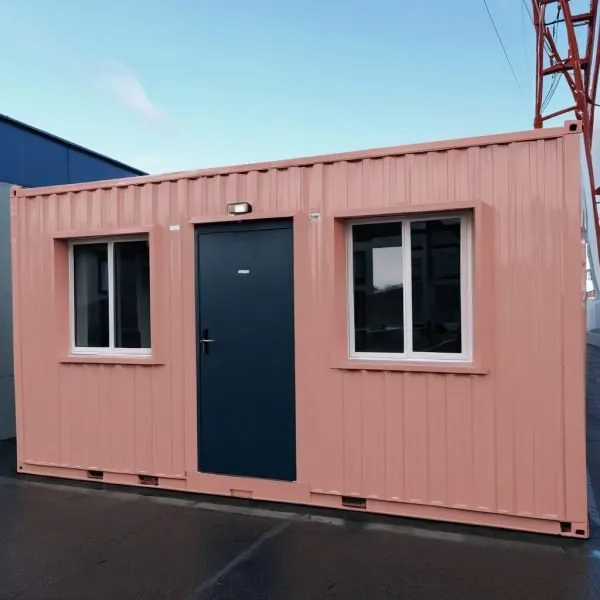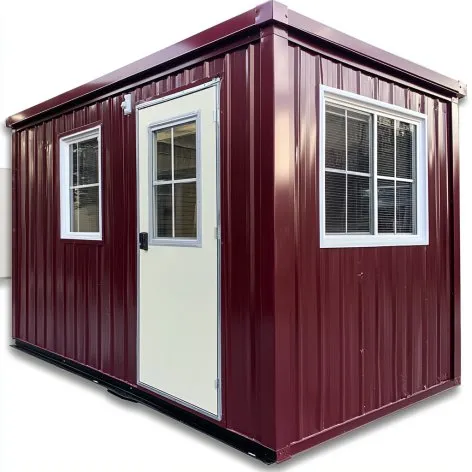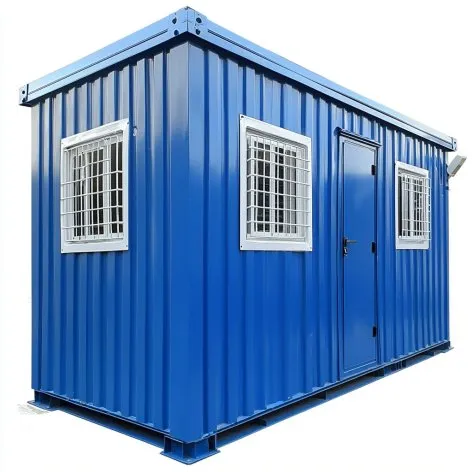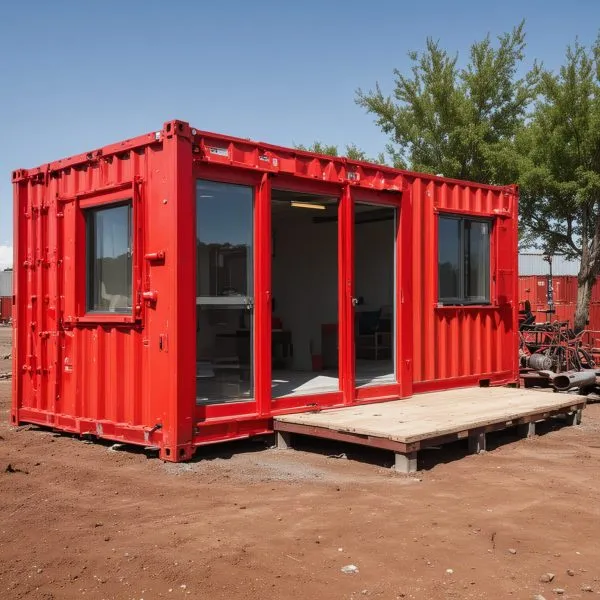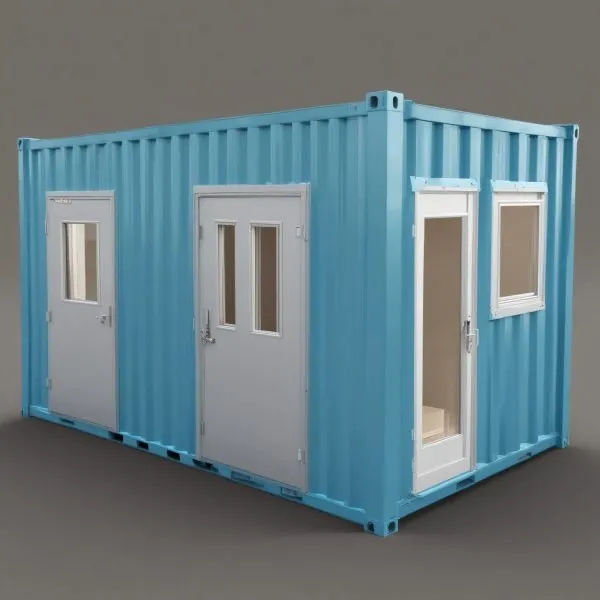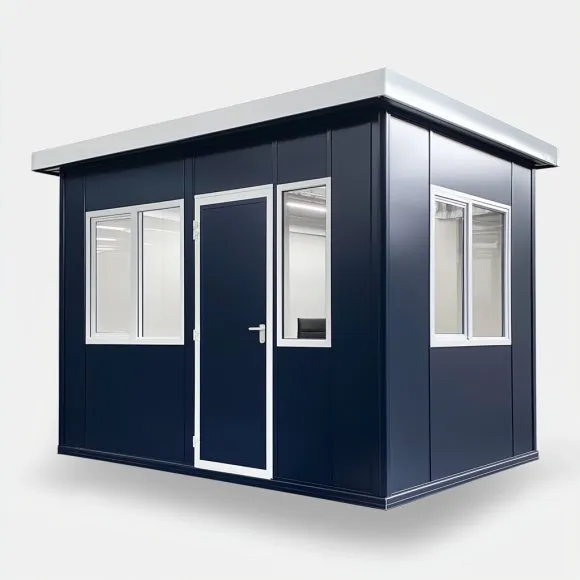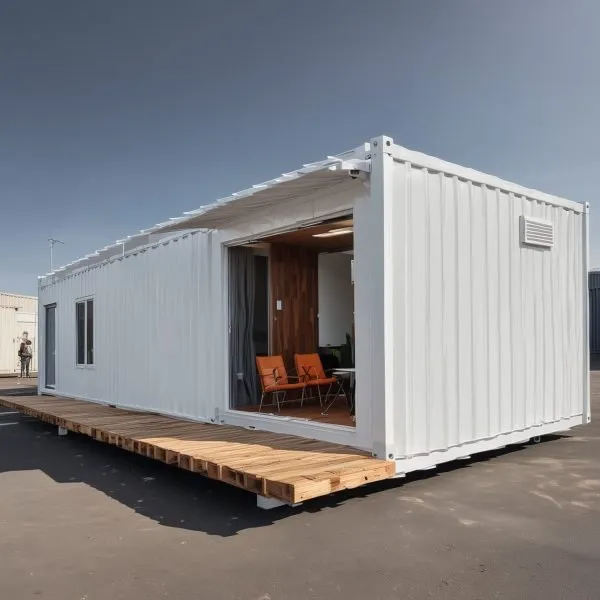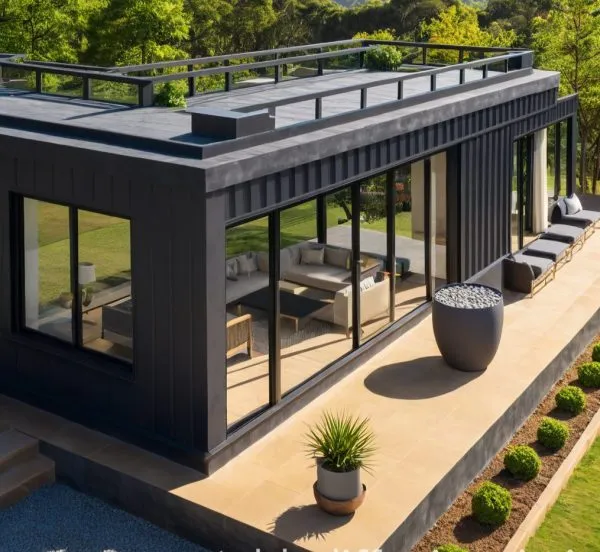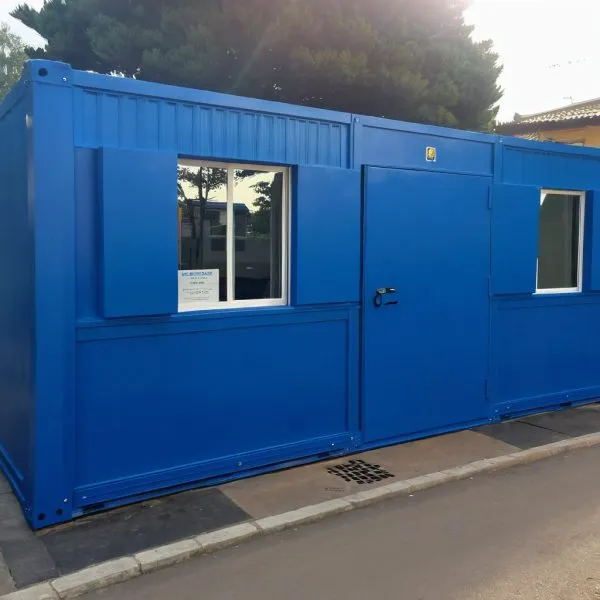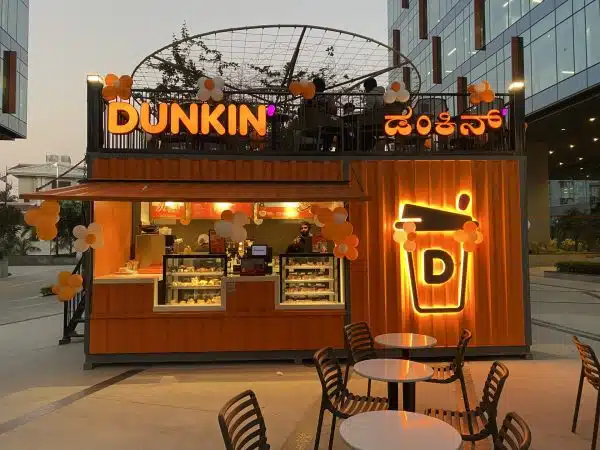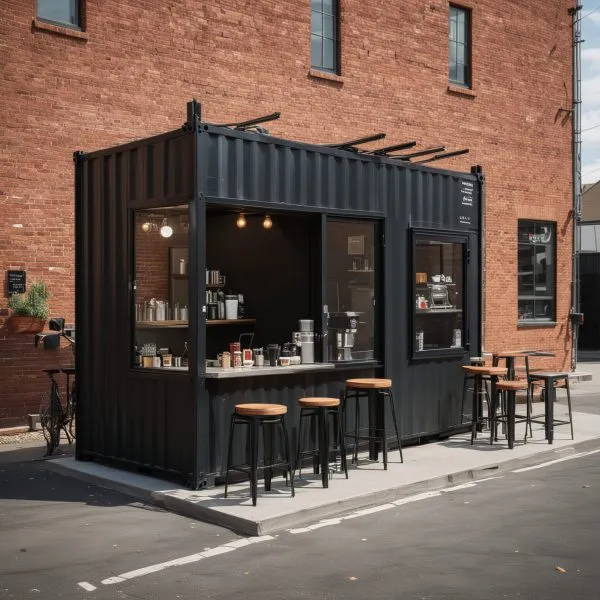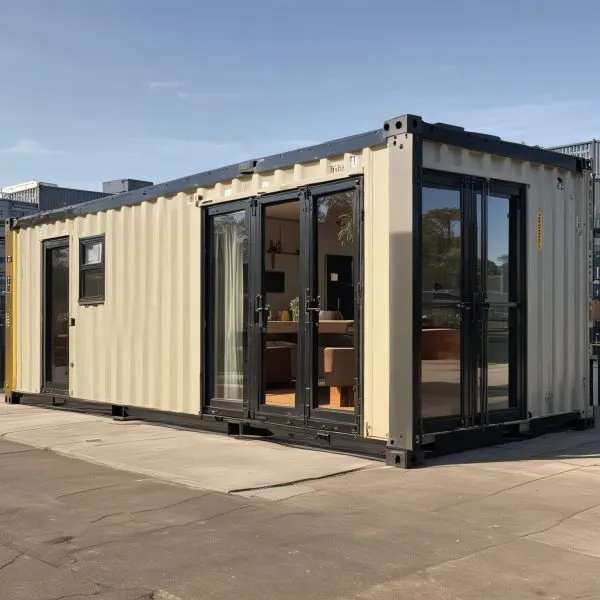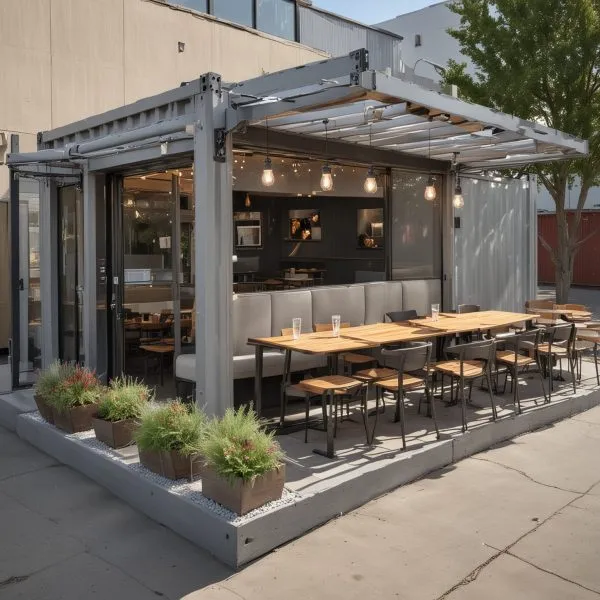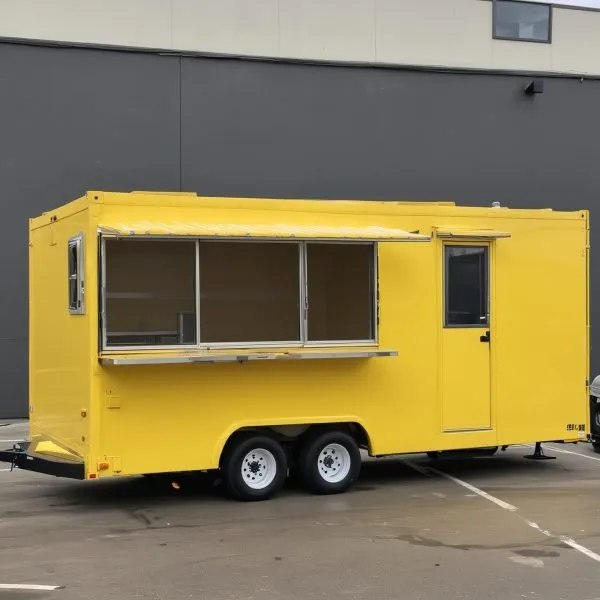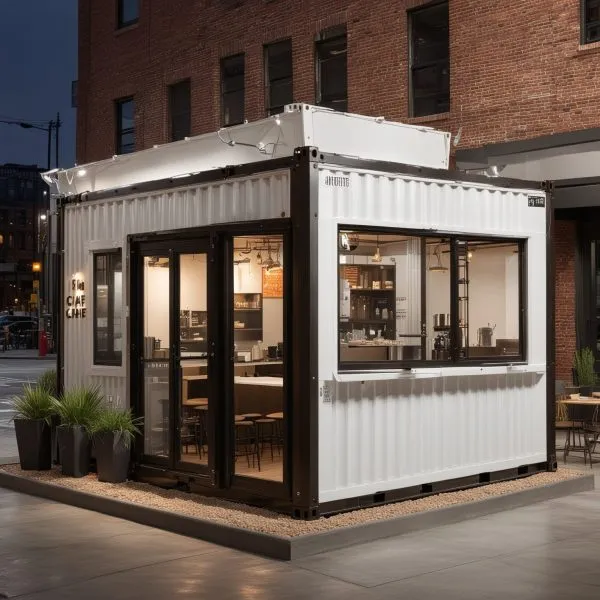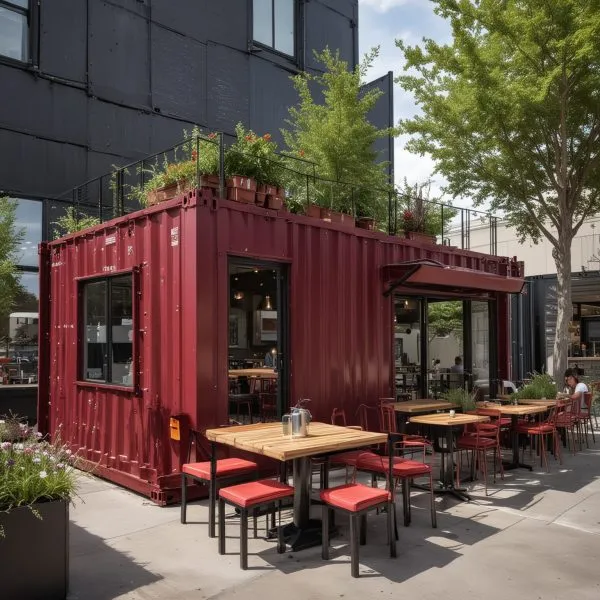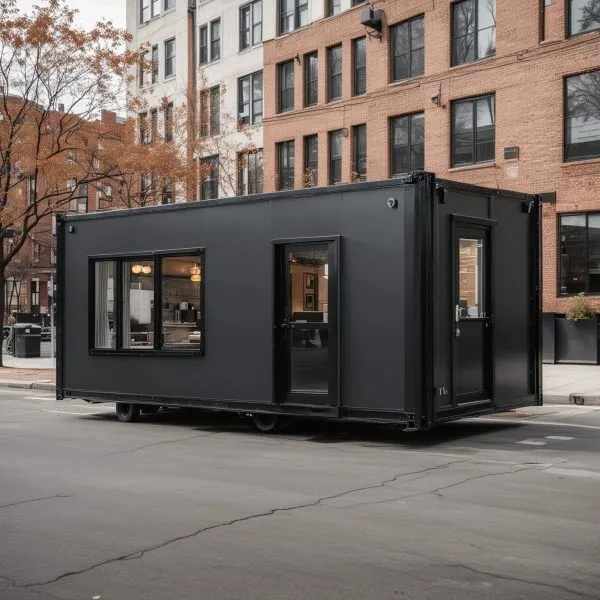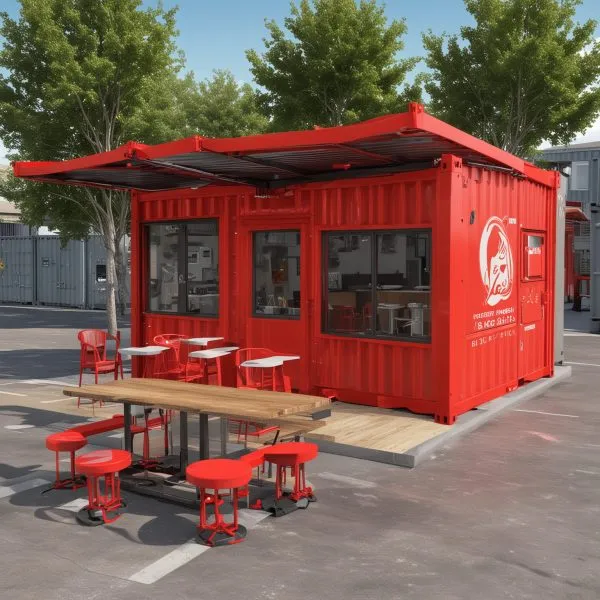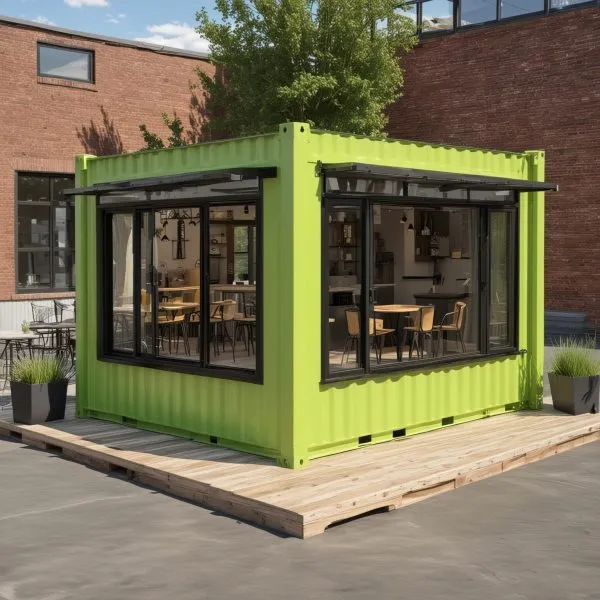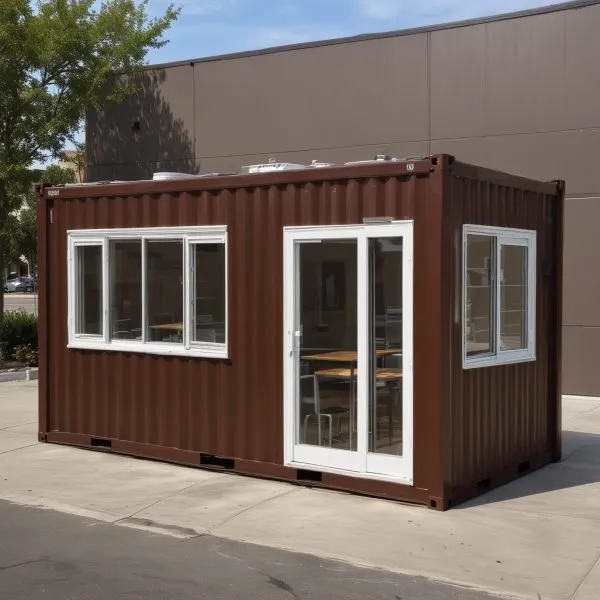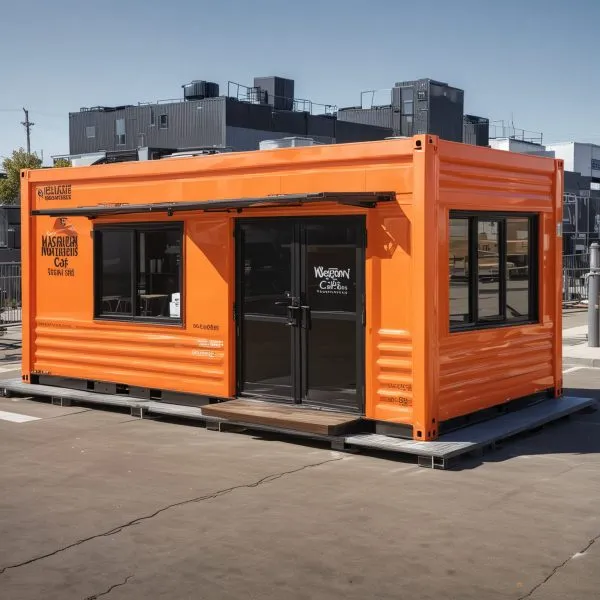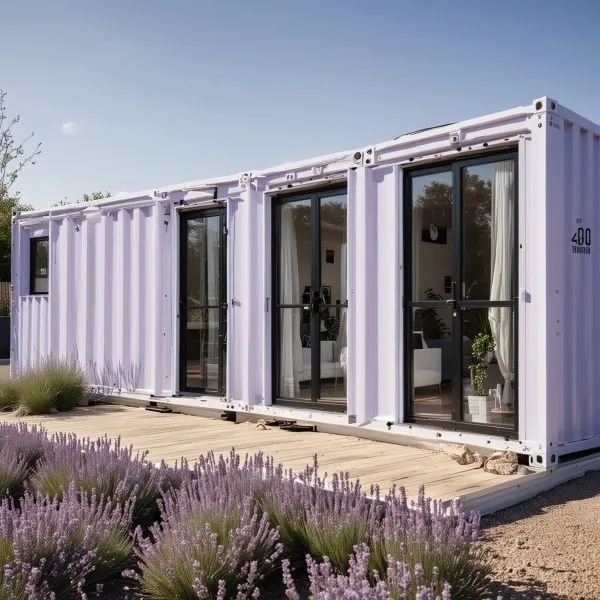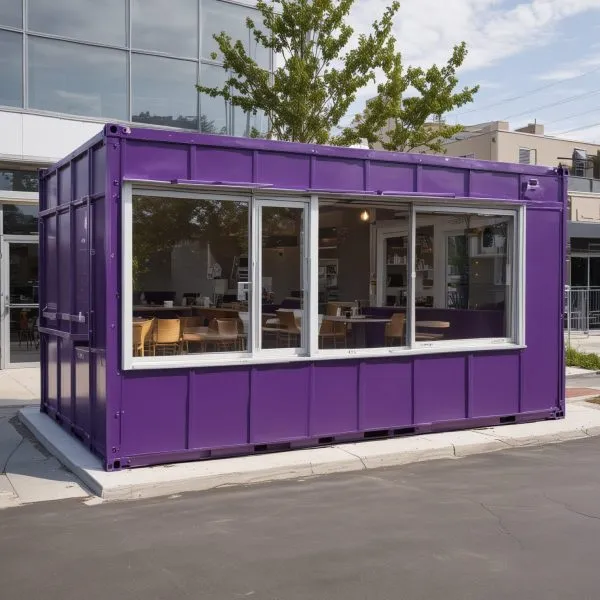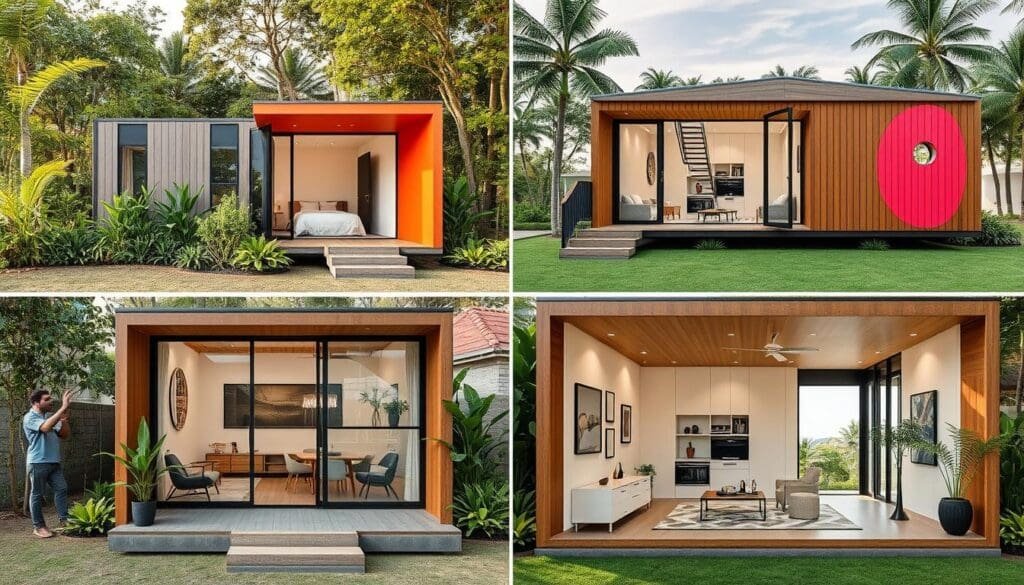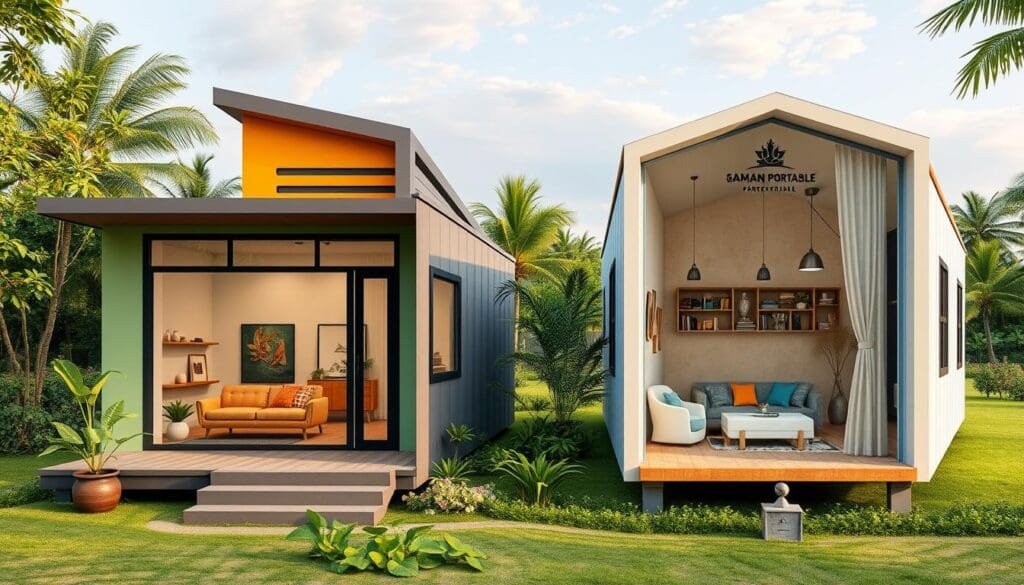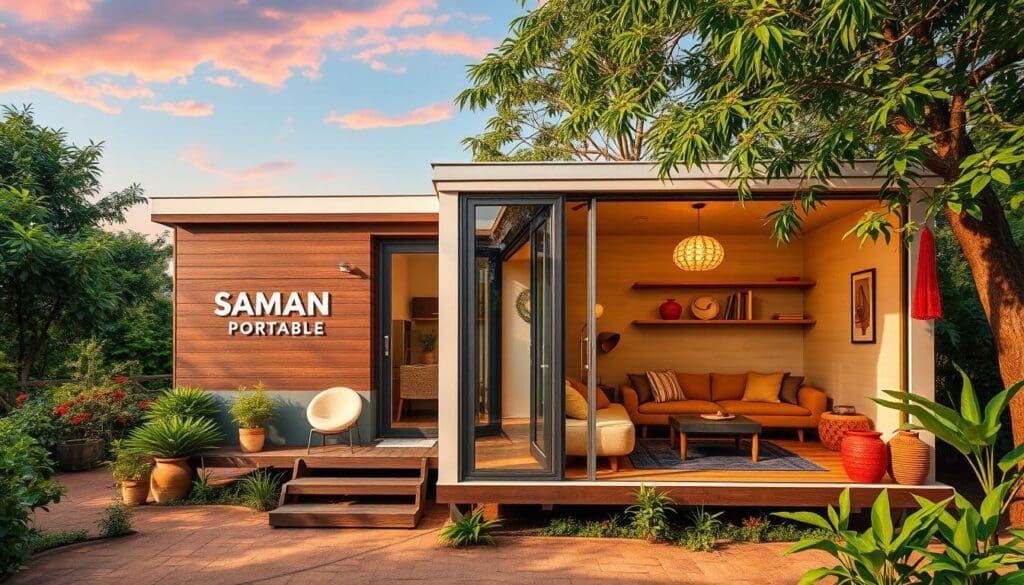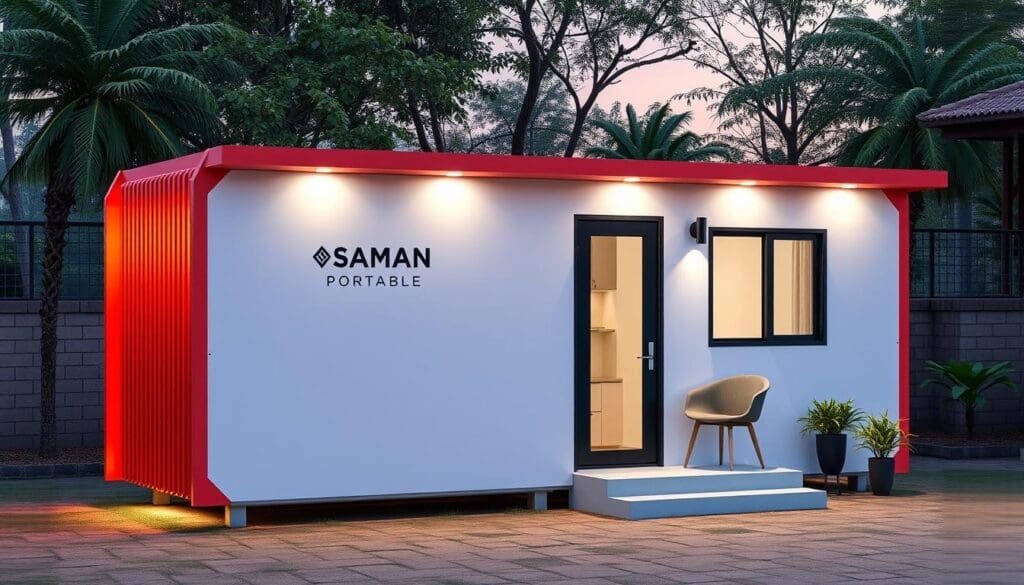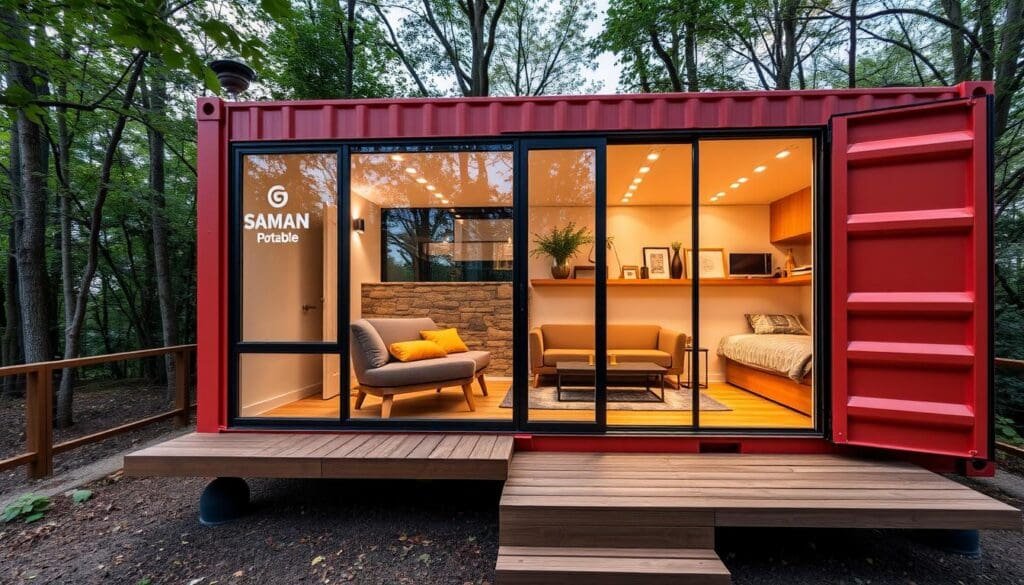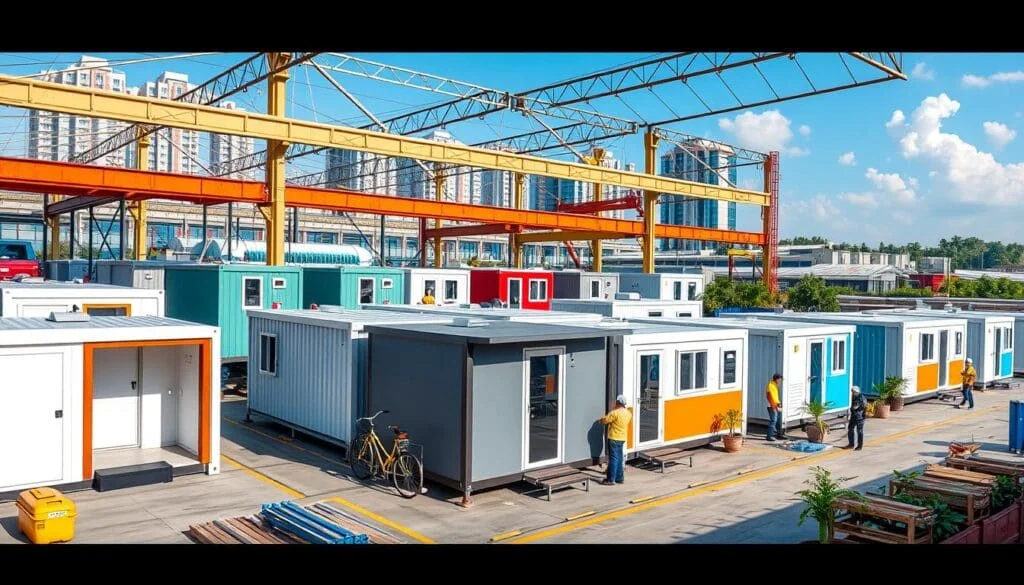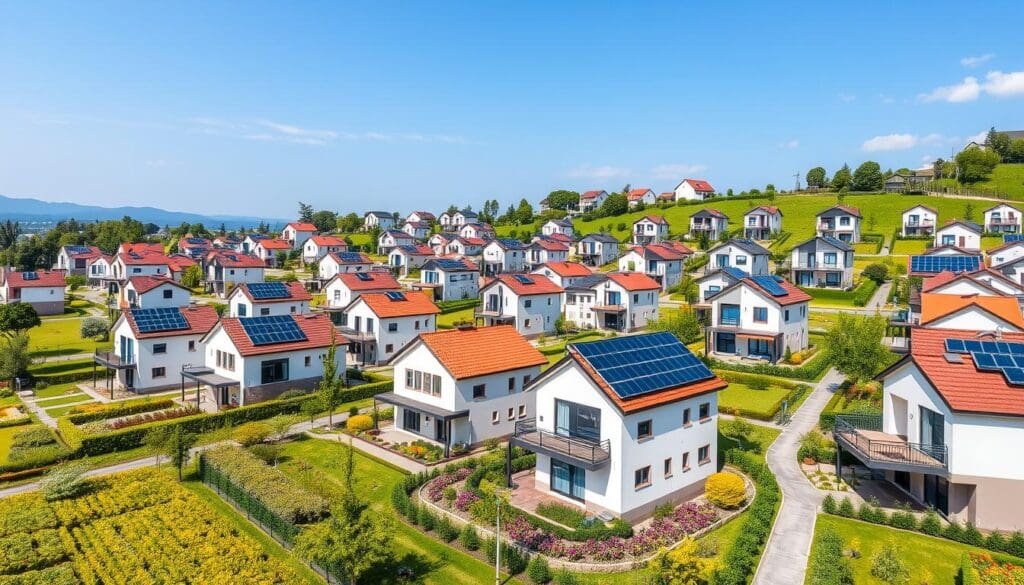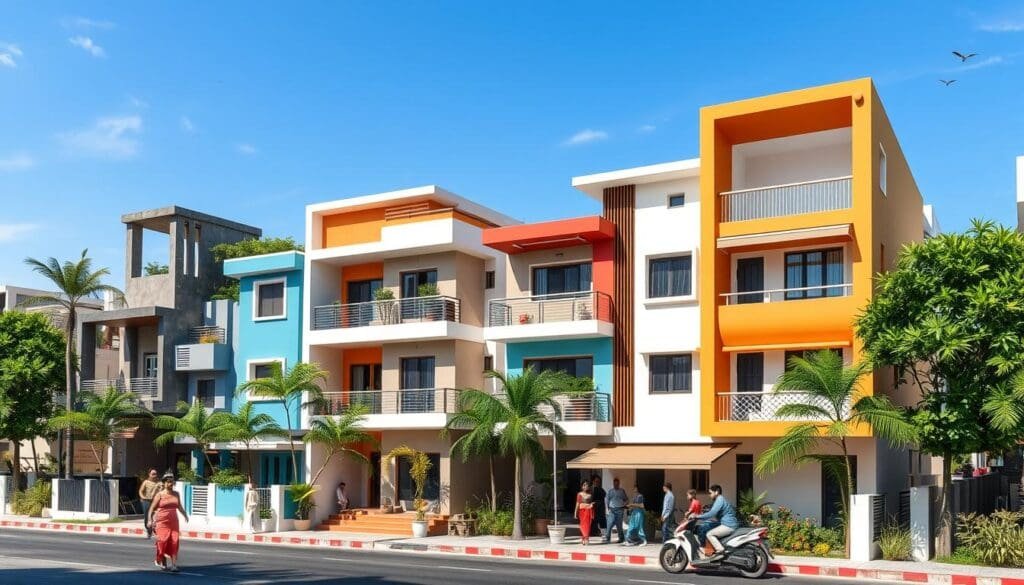Types of Prefabricated Houses Available in India: Your Guide to Modular Solutions
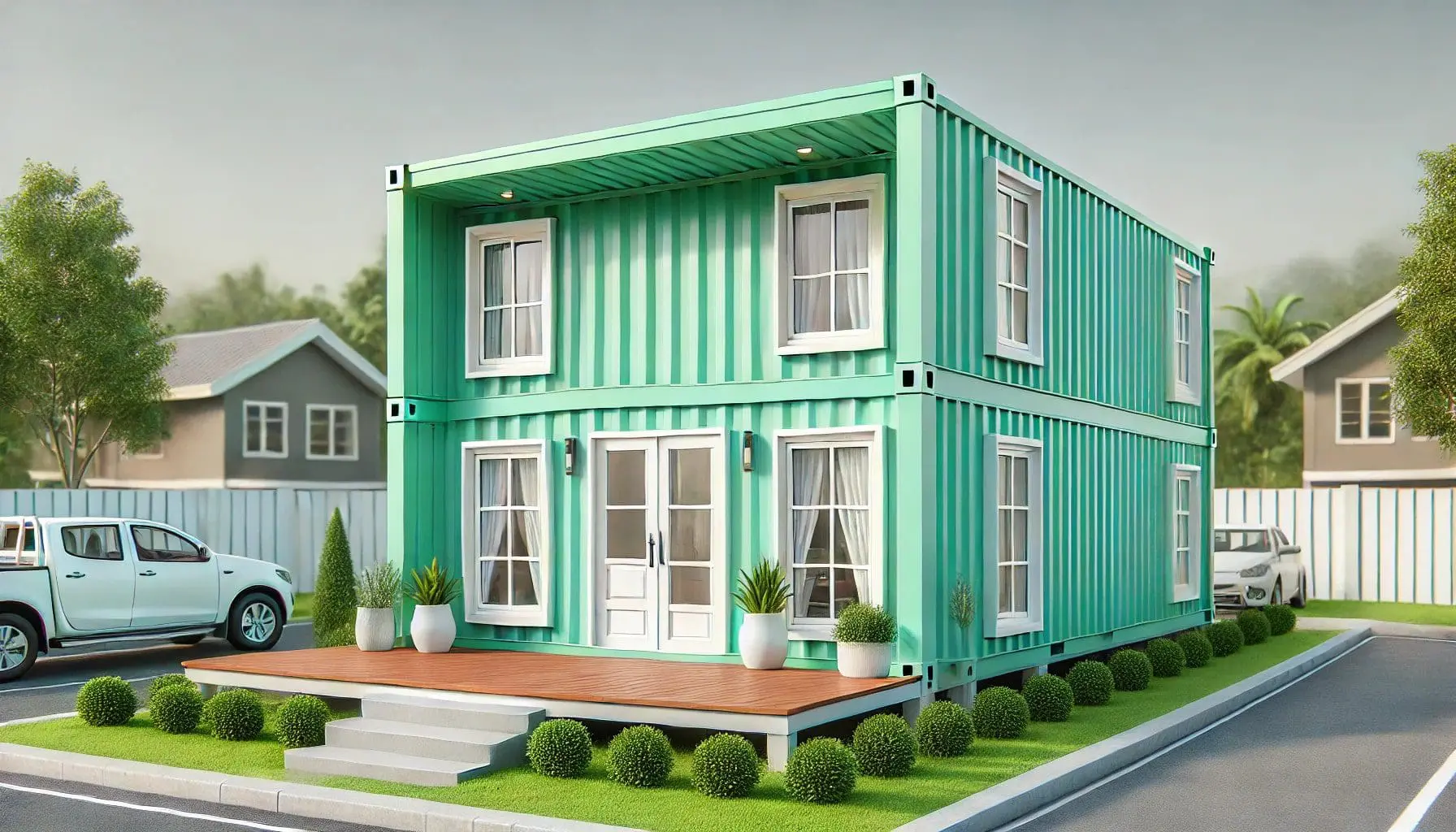
Introduction to Modular House India
Why Modular Housing is Gaining Popularity in India
Modular housing has become a transformative trend in India’s construction industry, offering a flexible, cost-effective solution for modern housing needs. Unlike traditional construction, where each phase occurs on-site, modular homes are built in pre-designed sections in a controlled environment. These sections, known as modules, are then transported to the site and assembled, ensuring precision, durability, and speed. This shift toward modular homes reflects the country’s need for scalable, affordable, and sustainable housing that can adapt to various residential and commercial requirements.
Modular homes provide an adaptable choice for homeowners and businesses, blending functionality with design flexibility. With increasing demand for practical, efficient housing in both urban and rural areas, modular homes are particularly suited for regions needing immediate housing solutions without the long construction timelines associated with traditional builds. Products such as container-based structures are ideal for space-limited urban areas, offering a compact, robust option for housing and workspace requirements.
The Benefits of Modular House India in Diverse Applications
In India, modular houses are used in a variety of ways, from permanent family homes to temporary office spaces, making them versatile for diverse applications. Prefabricated homes offer modular solutions that cater to different budgets, allowing clients to select options that best fit their financial and spatial requirements. For instance, portable cabins and porta cabins serve as temporary structures on construction sites, acting as flexible offices or accommodation units for workers.
Furthermore, modular houses are becoming a preferred choice for sustainable construction. Prefabricated housing is manufactured with precision to reduce material waste and enhance energy efficiency. By building in a factory setting, manufacturers control waste better and reduce the environmental footprint of each structure. Saman Portable’s range of prefabricated houses incorporates eco-friendly materials and designs, making them a smart choice for those prioritizing sustainability.
Why Modular House India is an Ideal Solution for Modern Needs
The adaptability and ease of installation make modular housing an excellent solution for India’s evolving housing demands. Modular homes offer customization in layout, design, and functionality, giving clients the freedom to select everything from floor plans to interior finishes. As the market for prefab housing expands, so does the ability of modular homes to provide a quick, affordable, and environmentally friendly housing alternative. Modular houses bring an efficient, reliable approach to India’s construction landscape, allowing for immediate and scalable housing solutions tailored to diverse needs.
Understanding Modular Houses in India
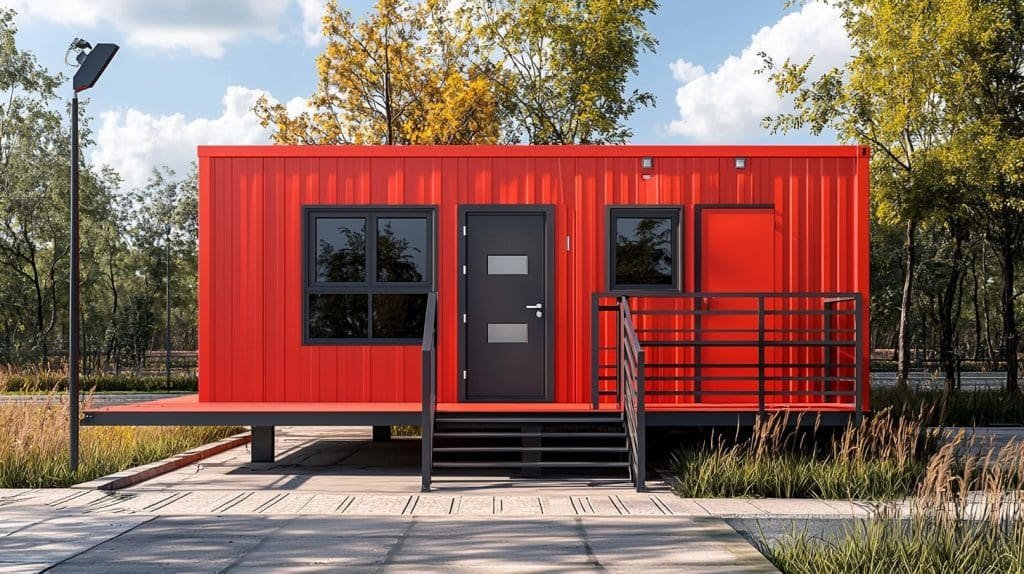
What Defines a Modular House?
A modular house in India is constructed through an innovative process where sections, known as modules, are built in a factory-controlled environment. These modules are transported to the designated location and assembled to form a complete structure. Unlike traditional homes, modular houses offer the flexibility to adapt designs and layouts, making them suitable for various needs, from residential homes to commercial spaces. This approach results in efficient construction with high-quality outcomes, as every component is manufactured with precision in a controlled setting. Saman Portable provides several options, such as modular homes and container-based structures, designed for durability and efficiency.
Advantages of Modular Houses Over Traditional Construction
One of the primary benefits of modular houses is their ability to be customized according to individual needs and preferences. Since they are manufactured in separate modules, the layout and style can be easily adjusted without major changes in cost or time. Modular homes are typically completed faster than traditional homes, allowing residents or businesses to move in much sooner. This is particularly beneficial in India’s urban areas, where demand for housing and workspace often exceeds supply. Options like portable cabins and porta cabins from Saman Portable are widely used in India’s modular housing sector, providing quick and flexible solutions for temporary or permanent spaces.
Modular houses also have a lower environmental impact due to their efficient production process. The controlled manufacturing environment reduces material waste and allows for the use of eco-friendly materials, which is a priority for many modern buyers. Saman Portable’s prefabricated houses exemplify sustainable design with energy-efficient features, helping to minimize both construction waste and ongoing energy consumption.
For more information on the benefits of prefabricated houses, check out Prefabricated House in India Benefits.
Customization and Adaptability of Modular Building Homes
The adaptability of modular houses in India makes them an ideal choice for various settings. Clients can select from diverse layout options, materials, and interior finishes to create a modular home tailored to their needs. This customization extends beyond interiors, as modular homes can be expanded or reconfigured to accommodate future changes, such as adding extra rooms or altering layouts. For example, products like portable cabins and container homes can be customized to include energy-efficient windows, insulated walls, and personalized floor plans, making them as versatile as they are functional.
With this flexibility, modular housing is meeting the demands of India’s fast-growing housing sector, addressing the need for reliable, affordable, and sustainable living spaces. This unique construction style provides long-term value by allowing homeowners and businesses to adapt and personalize their spaces over time, reinforcing modular housing as a top choice for modern living.
Different Types of Prefabricated Homes in India
Exploring Prefabricated Housing Options
The prefabricated housing market in India includes a diverse range of options, each designed to serve specific needs. Modular homes, for instance, are ideal for both urban and rural settings, offering flexibility and durability that suit various applications. From temporary structures like porta cabins to permanent modular homes, prefabricated solutions cater to a wide audience looking for efficient and adaptable housing. Saman Portable provides an extensive selection of prefab housing, including container-based homes, which are popular for compact and robust living spaces.
Modular Homes: Flexible and Customizable
Modular homes are among the most sought-after prefabricated options in India due to their ability to be tailored to individual needs. These homes are built in modules, allowing owners to select layouts, finishes, and even sustainable building materials. Modular homes can be expanded or modified as requirements change, making them ideal for families and businesses alike. Saman Portable’s modular housing options deliver both aesthetic appeal and functionality, providing a comprehensive solution for anyone seeking a fully customized living or working space.
Additionally, modular homes can include energy-efficient features that reduce long-term costs. Prefabricated units are designed to integrate insulation, ventilation, and energy-saving systems seamlessly, allowing for a modern and sustainable approach to housing. Products such as prefabricated housing units from Saman Portable offer eco-friendly options, meeting the rising demand for sustainable living in India.
Fabricated Homes: Durability and Speed of Construction
Fabricated homes are known for their sturdy build and quick assembly, which are essential in areas with urgent housing needs. These structures are manufactured off-site and transported to the final location for assembly, reducing the time and costs associated with traditional building methods. Fabricated homes, like Saman Portable’s portable cabins, are often used for industrial and commercial purposes, such as on-site offices or worker accommodations, providing a reliable, durable option for temporary spaces.
The advantages of fabricated homes extend to adaptability and ease of transport, allowing them to be set up in challenging terrains or remote locations. For businesses or individuals looking for temporary, movable housing solutions, options like Saman Portable’s portable structures offer quick, durable, and cost-effective solutions.
With these varied types of prefabricated homes, India’s prefab housing market meets the diverse needs of its population, from urban living spaces to rural accommodations. Prefab housing is now widely seen as a practical and sustainable approach to modern housing, offering a range of styles and options that suit any requirement or budget.
For insights into the fast delivery of ready-to-move homes, visit Pre-built Kit Homes: Quick Affordable Housing.
Features of Modular Building Homes
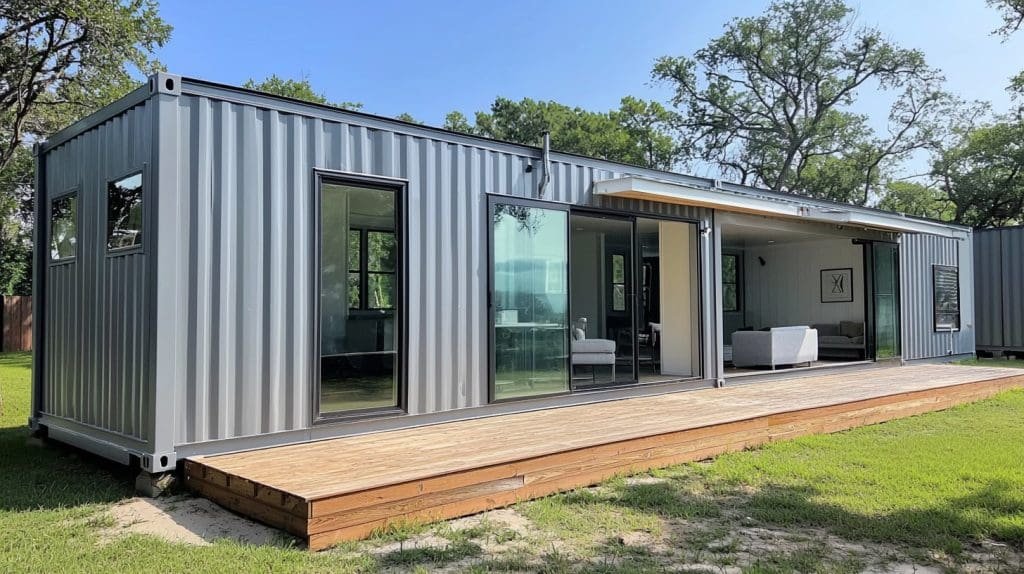
Structural Integrity and High-Quality Materials
Modular building homes in India are crafted with a focus on durability and structural integrity, making them an excellent choice for regions with varying climates and terrains. These homes are constructed using premium materials, such as reinforced steel frames and insulated panels, to ensure they withstand the test of time. Unlike traditional homes, modular structures benefit from factory-based quality control processes, allowing for meticulous attention to detail and consistency in construction. For example, Saman Portable’s range of container-style homes offers robust designs suitable for both residential and commercial purposes, providing an ideal solution for those seeking resilience and longevity.
Energy Efficiency and Sustainable Design
One of the standout features of modular building homes is their focus on energy efficiency. Prefabricated homes can incorporate advanced insulation, energy-efficient windows, and ventilation systems that help reduce overall energy consumption. This is particularly beneficial in India’s diverse climates, where insulation can significantly lower heating and cooling costs. Prefabricated options like Saman Portable’s eco-friendly housing units are designed with sustainable materials, providing long-term savings and a reduced carbon footprint.
Additionally, modular homes often use materials that minimize environmental impact, such as recycled metals and renewable building materials. This commitment to sustainability aligns with the increasing demand for green building practices in India. With options like portable cabins that include eco-conscious features, prefab homes contribute to sustainable living while meeting modern aesthetic and functional standards.
Interior and Exterior Customization Options
Modular homes are highly customizable, both inside and out. Clients can select from a variety of interior layouts, finishes, and room configurations to create a space that reflects their lifestyle or business needs. Exterior customization options include different cladding materials, colors, and architectural styles, allowing modular homes to blend seamlessly into urban or rural settings. Products such as portable structures from Saman Portable are designed to adapt to specific aesthetic preferences, making it easy to create a modular home that feels unique and personalized.
Adaptability for Future Expansion
Another key feature of modular homes is their adaptability. Modular homes are designed with flexibility in mind, allowing for future expansion or reconfiguration as needs change. Homeowners can easily add new rooms or adjust the layout without significant disruption or expense. This adaptability makes modular homes an ideal choice for families or businesses that anticipate growth, as additional modules can be integrated with minimal hassle. Modular structures like container-based housing units offer scalable solutions, providing the versatility to evolve with changing demands.
With these features, modular building homes offer a modern, efficient, and customizable alternative to traditional construction, aligning with the needs of contemporary Indian buyers who prioritize quality, efficiency, and sustainability.
Prefab Home India: An Economical Solution
Affordability as a Key Advantage
One of the most compelling reasons for the popularity of prefab homes in India is affordability. Prefab construction methods significantly reduce costs compared to traditional building approaches by minimizing labor and material waste. Prefabricated homes are manufactured in a controlled environment, allowing precise calculations of materials needed, which helps reduce overall expenses. This cost-effectiveness makes prefab homes a feasible choice for budget-conscious buyers looking for quality housing without the high price tag associated with conventional construction. Options like Saman Portable’s modular housing solutions provide affordable, durable options for those seeking value-driven housing.
Cost Comparison Between Prefab and Traditional Homes
Prefab homes, including modular and container-based units, generally come with a lower price point compared to traditional houses. While traditional homes require extended labor hours, site preparation, and expensive materials, prefab homes simplify the construction process by building modules in factories. The controlled environment allows manufacturers to avoid common on-site issues, like weather delays, that can add unforeseen costs. Prefabricated solutions such as portable cabins from Saman Portable are examples of efficient, affordable options ideal for residential or commercial use.
This cost comparison becomes especially important in urban areas, where property prices are high and housing demand is significant. Prefab homes enable families and businesses to own functional, customized spaces without overshooting their budgets. Portable structures like porta cabins offer versatile solutions for temporary or permanent accommodations at a fraction of the cost of traditional buildings.
Discover the Prefabricated House Construction Process to understand how modular houses are built.
Low Maintenance and Long-Term Savings
Another economic benefit of prefab homes is the reduced maintenance cost. Prefab structures are designed with materials that require minimal upkeep, such as steel frames and weather-resistant cladding, which extend the home’s lifespan and reduce the need for frequent repairs. These homes are also built to be energy-efficient, with insulation, ventilation, and energy-saving windows that contribute to lower utility bills. Saman Portable’s container-style homes provide these energy-saving features, helping homeowners and businesses enjoy long-term savings.
Flexibility for Various Budgets and Needs
Prefab homes offer scalable solutions that can be tailored to fit different budgets and space requirements. From compact portable cabins for temporary office spaces to larger, family-sized modular homes, prefabricated housing caters to a wide range of preferences. This flexibility makes prefab homes an accessible option for both residential and commercial clients across India. Saman Portable’s selection of prefabricated and modular units allows clients to choose designs that match their budget, without sacrificing quality or functionality.
By offering an economical, low-maintenance housing solution, prefab homes meet the growing demand for affordable housing in India, making them an attractive alternative for individuals and businesses alike.
Learn more about modular designs and benefits with our Modular House Design in India Benefits page.
Key Advantages of Fabricated Homes
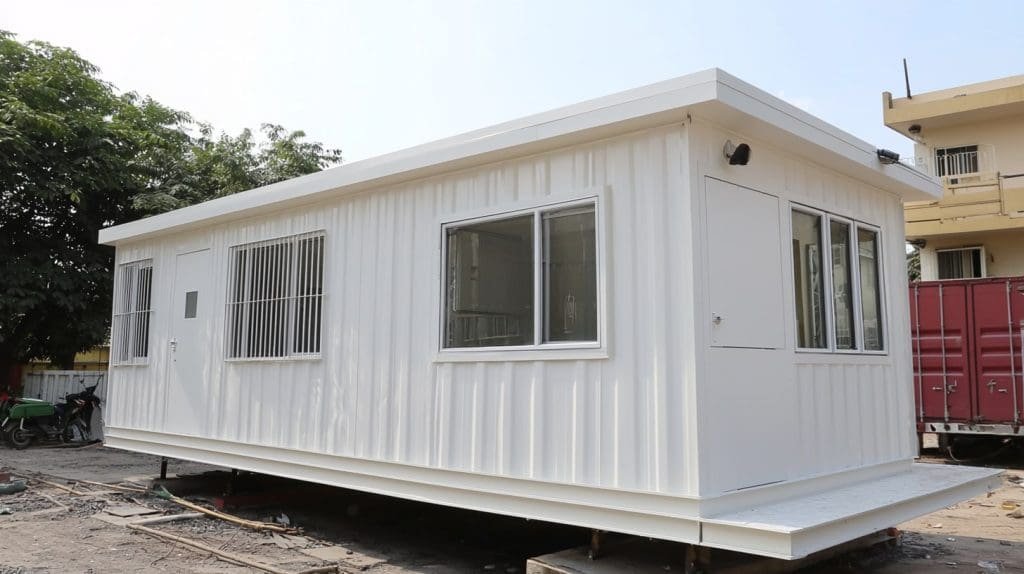
Efficiency in Construction and Assembly
Fabricated homes offer a significant advantage in terms of construction speed and assembly. Built in a factory-controlled environment, fabricated homes are manufactured and assembled faster than traditional homes, often completing the process within weeks rather than months. This rapid construction timeline is especially valuable in areas with urgent housing needs, allowing families or businesses to move into their new spaces promptly. Prefabricated options like Saman Portable’s modular housing units demonstrate this efficiency, providing quick, high-quality solutions that save both time and money.
Sustainability and Reduced Environmental Impact
Fabricated homes are designed with sustainability in mind, helping reduce the environmental impact of construction. By using recycled materials, energy-efficient designs, and streamlined production processes, fabricated homes minimize waste and energy consumption. Unlike traditional building methods that can result in excess materials and prolonged construction timelines, fabricated homes ensure every component is used efficiently. Options like Saman Portable’s eco-friendly container homes offer sustainable, energy-saving features that appeal to environmentally conscious buyers, making prefab housing a responsible choice in today’s market.
The off-site manufacturing process also reduces on-site disruption, limiting the environmental impact on the surrounding area. Products such as portable cabins integrate energy-saving features and renewable materials, aligning with the increasing demand for sustainable housing in India.
Check out Fabrication House in India Modular Guide for sustainable construction practices.
Strength and Durability of Fabricated Homes
One of the top advantages of fabricated homes is their strength and durability. Constructed with materials such as steel frames and insulated panels, these homes are built to withstand various weather conditions and offer lasting resilience. The factory-based assembly allows for precise control over quality, ensuring each structure meets high safety standards. Saman Portable’s durable prefab units exemplify the robustness of prefab structures, which are engineered to last and provide dependable housing or workspace solutions for years.
Versatility in Application
Fabricated homes provide versatile solutions for both residential and commercial applications. From portable cabins used as temporary offices or on-site accommodations to larger fabricated homes suitable for family living, prefab units cater to diverse needs. This versatility makes them a practical choice for areas that require immediate, flexible housing solutions. Saman Portable’s range of container-based structures offers flexible design and functionality, making them ideal for different settings, from urban areas to remote locations.
Fabricated homes continue to gain popularity due to their efficient construction, durability, and adaptability, making them a valuable option in India’s growing prefab housing market. With these advantages, fabricated homes are well-suited to meet India’s housing demands, offering quality, sustainability, and cost-efficiency.
Modular Homes for Different Regions in India
Adaptability of Modular Homes Across India’s Diverse Climates
India’s varied geography and climate conditions make adaptability a crucial factor in housing. Modular homes are well-suited for different regions, from the humid coastal areas to the arid northern plains and the colder hill stations. Modular homes can be customized to withstand diverse weather patterns, including heat, humidity, rain, and cold, making them a versatile housing solution across the country. Companies like Saman Portable provide modular homes and prefabricated structures that can be tailored with climate-specific materials, offering reliable shelter regardless of the region.
Applications in Urban and Rural Areas
In urban settings, modular homes address high-density housing needs efficiently. The quick setup and space-efficient designs make modular homes a practical choice for city dwellers who need affordable, well-built housing. For instance, compact container-based units are ideal for limited spaces, while larger modular homes provide residential solutions for families. Modular homes in urban areas also double as portable office spaces, making them adaptable for professional use in cities with growing business hubs.
In rural regions, modular homes provide a reliable option for individuals and families seeking sturdy, affordable housing. Modular homes can also serve as temporary accommodations in remote locations, such as mining or construction sites, where traditional housing might be challenging to establish. Products like portable cabins from Saman Portable offer a flexible, quick-to-install option for rural clients needing functional living spaces in less accessible areas.
Regional Applications and Popularity
The appeal of modular homes varies by region, with different styles and applications suited to specific areas. In southern and western India, modular homes are popular for their ability to withstand high humidity and temperatures, while in northern states, they are designed with insulated walls to combat colder climates. Modular homes are also increasingly adopted as porta cabins in regions with significant industrial activity, where quick and temporary setups are required. Saman Portable’s portable structures provide adaptability for these industrial zones, allowing companies to set up durable, comfortable accommodations quickly.
Benefits for Disaster-Prone Areas
In regions prone to natural disasters, such as coastal areas susceptible to cyclones or flood-prone plains, modular homes offer an added advantage. These homes can be built with reinforced materials to withstand high winds, heavy rains, and seismic activity. The controlled manufacturing process ensures each component meets stringent safety standards, making modular homes a resilient housing option for disaster-prone areas. Saman Portable’s range of durable container homes provides robust solutions tailored to withstand environmental stressors, ensuring both safety and comfort.
By offering adaptability, strength, and region-specific features, modular homes provide a flexible housing solution that meets India’s diverse geographical and climatic needs. This versatility reinforces the appeal of modular housing across the country, making it an increasingly popular choice for both residential and commercial purposes.
Customization Options in Modular Homes India
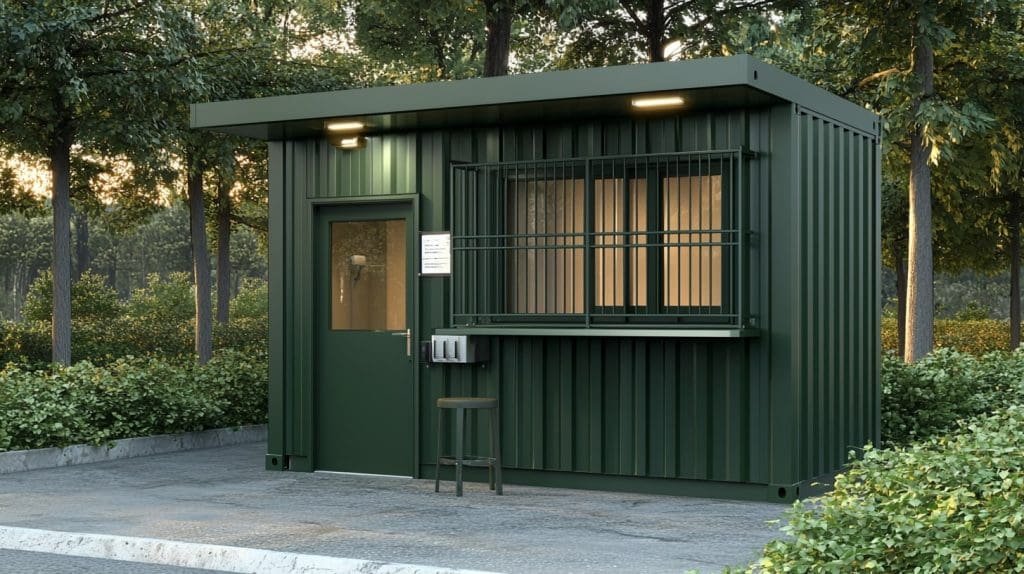
Personalized Layouts and Interior Designs
Modular homes in India offer extensive customization options, enabling homeowners to tailor layouts, interiors, and finishes according to their unique preferences. From compact one-bedroom units to spacious multi-room configurations, modular homes can accommodate a variety of living arrangements. Buyers can select room sizes, floor plans, and storage solutions that suit their needs, whether for family living, rental purposes, or temporary accommodations. Saman Portable’s modular housing units, including customizable prefabricated homes, allow clients to design functional spaces that reflect their personal style and practical requirements.
Exterior Customization for Aesthetic Appeal
Beyond interiors, modular homes offer a range of exterior customization options, allowing homeowners to choose colors, materials, and finishes that complement their surroundings. From sleek, modern facades to rustic, textured finishes, modular homes can be adapted to blend seamlessly into urban or rural landscapes. Products such as container-based structures can be outfitted with exterior cladding, customized paint, or even additional architectural elements like decks and patios, giving each modular home a unique look. These design choices enhance curb appeal and make modular homes as visually appealing as traditional constructions.
Integration of Sustainable and Energy-Efficient Features
Sustainability is increasingly important for homeowners across India, and modular homes provide various eco-friendly customization options. Modular homes can incorporate energy-efficient features such as double-glazed windows, solar panels, and insulated walls, helping to reduce energy costs and environmental impact. By integrating these features, homeowners not only benefit from lower utility bills but also contribute to sustainable practices. Saman Portable’s eco-conscious modular homes are designed with such features, offering portable cabins and container units that align with the growing demand for environmentally friendly housing solutions.
Add-On Options for Expanded Functionality
Modular homes are also highly adaptable, allowing for easy additions and modifications as needs change. Homeowners can add extra rooms, storage spaces, or specialty areas such as home offices or playrooms without extensive renovations. This flexibility makes modular homes ideal for families or businesses that anticipate growth or changes in usage. Options like portable structures from Saman Portable are particularly versatile, as they can be modified with additional modules, ensuring that the space evolves with the user’s requirements.
The range of customization options available with modular homes enhances their appeal, offering homeowners a tailored living space that can adapt to their lifestyle and preferences. With customizable interiors, exteriors, energy-saving features, and expansion options, modular homes provide a personalized, modern solution for housing in India.
Choosing Between Modular and Traditional Homes
Comparison of Construction Time and Cost
When deciding between modular homes and traditional homes, one of the most significant factors is construction time. Modular homes are manufactured off-site in a controlled environment, allowing for faster assembly and installation. While traditional homes may take several months to build, modular homes can be completed within weeks, making them a practical solution for those seeking immediate housing. Additionally, modular homes tend to be more cost-effective due to reduced labor requirements and minimized material waste. Options such as Saman Portable’s prefabricated housing demonstrate the efficiency of modular construction in saving both time and money without sacrificing quality.
Durability and Quality Assurance
The controlled factory environment where modular homes are constructed ensures a high level of quality control, which can be harder to achieve in traditional on-site builds. Each component of a modular home undergoes thorough inspection and precision engineering to meet stringent standards. This meticulous approach results in durable, weather-resistant structures that can withstand varied climates across India. Prefab options like container homes offer robust designs that ensure longevity and resilience, giving modular homes an edge in durability compared to some traditional builds.
Traditional homes, however, benefit from customizable architectural designs and materials directly selected and managed on-site. Although modular homes offer a range of custom options, traditional construction provides more control over every stage of the building process, which some homeowners may prefer. Nonetheless, the quality assurance and durability of modular homes, such as Saman Portable’s porta cabins and modular units, make them a reliable choice for a variety of uses.
Flexibility and Scalability of Modular Homes
One of the unique advantages of modular homes is their flexibility and scalability. Homeowners can expand or modify modular structures as their needs evolve, adding new rooms, adjusting layouts, or even relocating sections without the extensive renovations typically required for traditional homes. This adaptability makes modular homes especially appealing for growing families or businesses needing flexible spaces. Saman Portable’s portable cabins illustrate this versatility, as they can be easily customized or expanded based on changing requirements.
Why Modular Homes Are a Compelling Choice
Given their efficiency, durability, and flexibility, modular homes offer a compelling alternative to traditional housing. They cater to the need for affordable, quick-to-assemble homes without compromising quality, making them an ideal solution for India’s evolving housing market. In a country where urban and rural housing demands are increasing, modular homes provide a modern, sustainable, and practical approach to residential and commercial spaces. With options such as Saman Portable’s modular and container-based units, modular homes continue to gain popularity as a viable housing solution for today’s diverse needs.
Choosing between modular and traditional homes ultimately depends on factors such as budget, timeline, and personal preference. For those prioritizing speed, scalability, and cost-effectiveness, modular homes provide a streamlined option with extensive customization potential.
Future of Modular House India
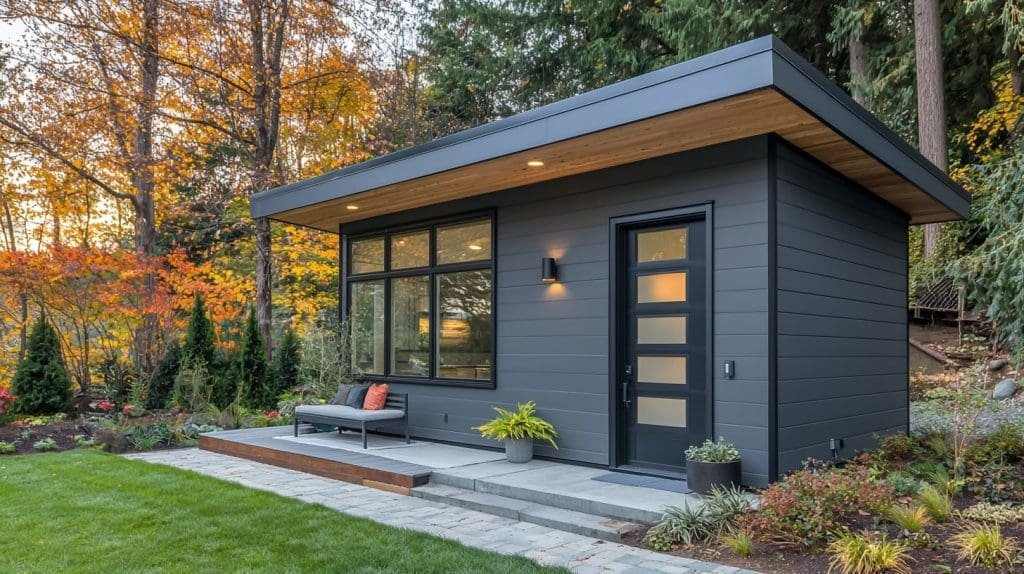
Growth Trends in India’s Modular Housing Market
The modular housing market in India is experiencing significant growth, driven by increasing demand for affordable, efficient, and sustainable housing solutions. As urban areas continue to expand and rural communities seek durable, cost-effective options, modular homes provide a timely response to India’s diverse housing needs. The adoption of modular homes is further bolstered by advancements in technology and an emphasis on eco-friendly construction practices. Companies like Saman Portable are at the forefront of this trend, offering a range of modular options that include container homes and portable cabins designed to meet the evolving demands of the Indian market.
Innovations in Sustainable and Smart Housing
Sustainability is a cornerstone of the future of modular housing in India. As environmental concerns grow, modular homes are expected to incorporate even more energy-efficient and eco-friendly materials. Innovations such as solar panels, rainwater harvesting systems, and advanced insulation technologies are becoming standard features in modular homes, allowing homeowners to reduce energy costs while minimizing their carbon footprint. Additionally, smart home technologies are being integrated into modular designs, with features like automated lighting, climate control, and security systems enhancing the comfort and functionality of modular living spaces. Saman Portable’s prefabricated units exemplify these advancements, combining sustainability with modern convenience.
The use of recycled and renewable materials in modular homes aligns with India’s shift towards greener construction methods. These sustainable practices not only reduce the environmental impact of housing but also align with governmental policies promoting eco-friendly development. As India continues to prioritize sustainability, modular homes are poised to become a vital part of the country’s housing landscape, offering long-term benefits for both homeowners and the environment.
Expansion Beyond Residential Applications
While modular homes are popular for residential use, their applications are expanding to include commercial and institutional sectors. Prefabricated structures are being used for a range of purposes, such as schools, healthcare centers, and office spaces, due to their quick installation and adaptability. Modular setups like porta cabins are commonly utilized as temporary or mobile offices, providing a flexible solution for businesses that need on-site accommodations. Saman Portable’s portable cabins offer versatility in design and functionality, supporting the growing demand for modular structures across multiple industries.
This adaptability also makes modular housing a valuable solution for areas impacted by natural disasters, where quick, durable housing is essential. Modular homes can be constructed rapidly and transported to affected areas, providing immediate relief and long-term stability for communities in need. The ability to scale modular solutions for both residential and non-residential purposes enhances their appeal and underscores their potential to address housing and infrastructure challenges across India.
Conclusion: Modular Homes as a Sustainable Solution for India’s Future
The future of modular housing in India is bright, with strong potential to reshape the country’s approach to construction. As India’s population grows and housing demands increase, modular homes offer an affordable, efficient, and environmentally responsible option that meets the diverse needs of urban and rural areas alike. Saman Portable is playing a pivotal role in this transformation, providing high-quality, customizable modular units that cater to a variety of uses and preferences. For a deeper look at Saman Portable’s commitment to modular innovation and sustainable practices, visit their about us page.
With ongoing advancements in technology and a focus on sustainability, modular homes are set to become a cornerstone of India’s housing and infrastructure future. The rise of modular housing aligns with India’s goals for sustainable development, offering a forward-thinking solution that addresses both current and future housing challenges.
 Container Cafe
Container Cafe